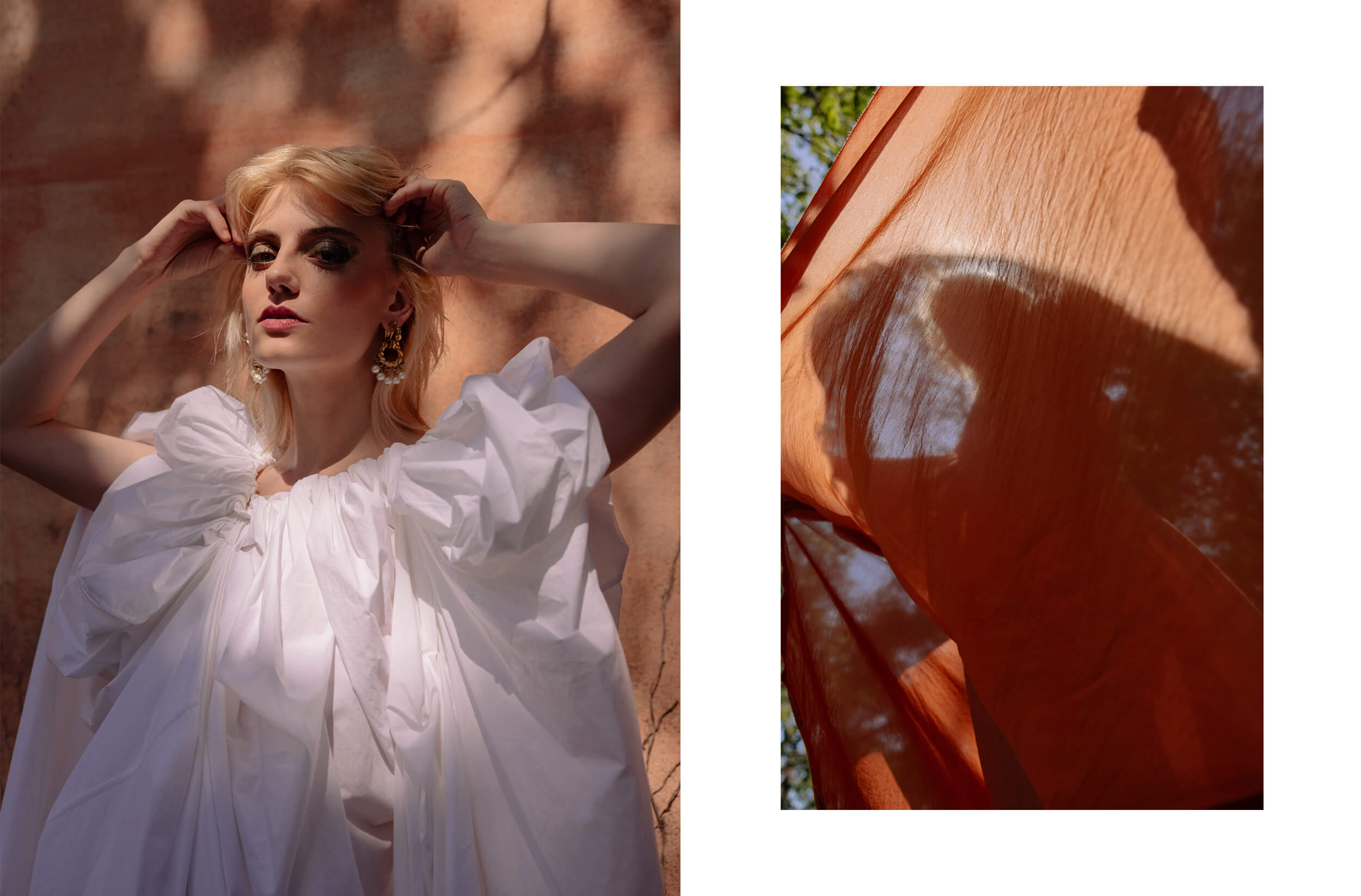In the role of Numero 4, a flight attendant trapped in shoes that don’t belong to her, actress Demetra Bellina confirmed some of her most heartfelt convictions, foremost among them the importance of committing oneself to not abandon their passions.
“Non credo in niente” by Alessandro Marzullo is a project that tells exactly what he believes in and wants to communicate to the world. Guided by a director who knows what he wants and can effectively communicate his precise and humane intentions to the actors, Demetra has lived a unique experience that has greatly helped her grow. The film depicts the characters’ nights, which are the moments when “what they truly feel comes out”, things for which there’s an absolute need to fight. With Demetra, we talked about the insecurity of our generation, full of dreams that are kept hidden away due to the fear of fully embracing them and the possibility of being happy. And about upcoming new projects, including an EP and a collection of stories.
What is your first cinema memory?
My most vivid and earliest memory is watching “The Lord of the Rings”. I went to see it in 2001 when I was 6 years old, and it really impressed me.
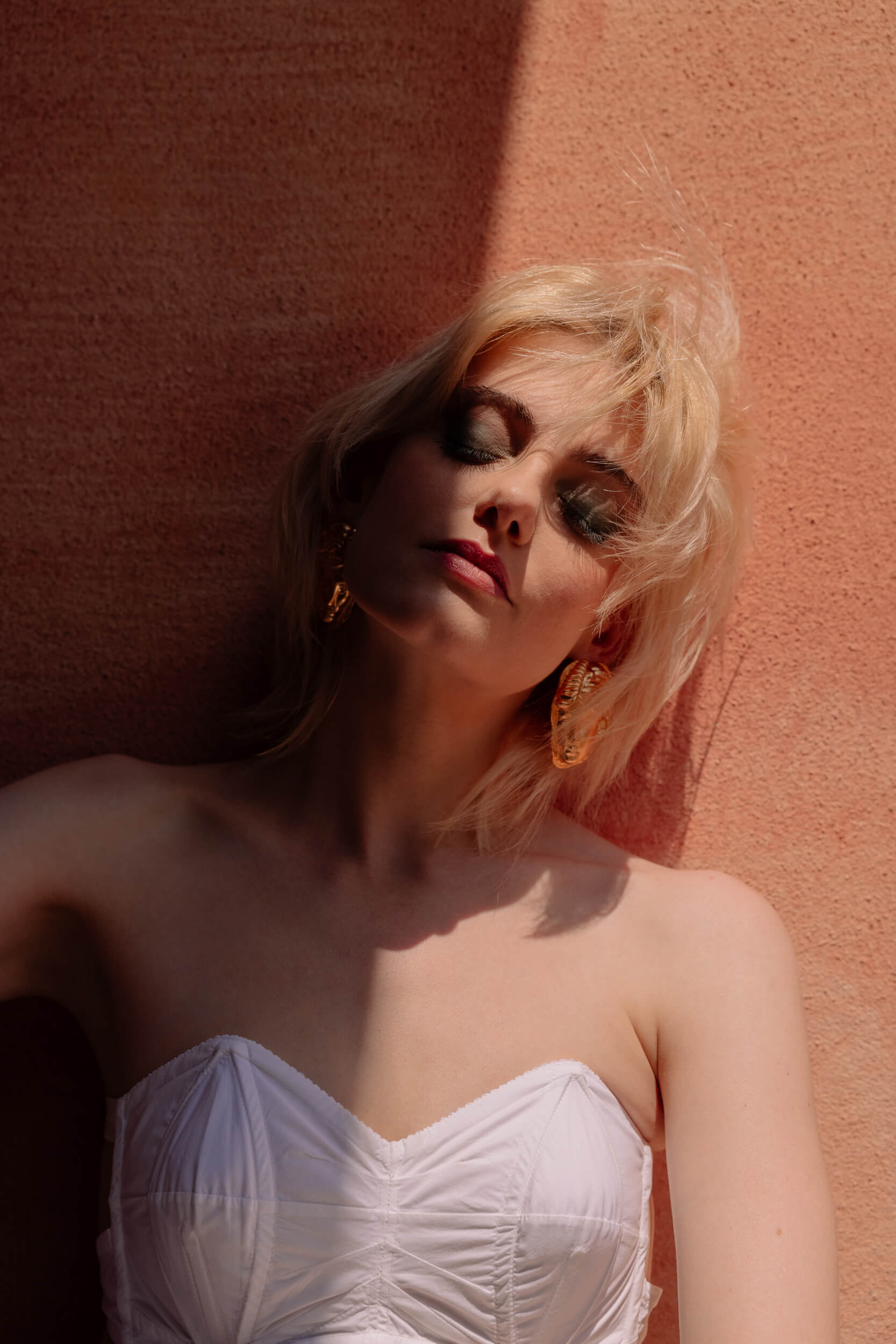
When did you realize that the world of cinema is where you belong?
I’ve always wanted to be an actress since I was a child and started doing theater. I loved the stage, and I enjoyed being in the spotlight. After high school, I went to university, but it didn’t work out for me. I quickly realized that it wasn’t my path, and my world is somewhere else.
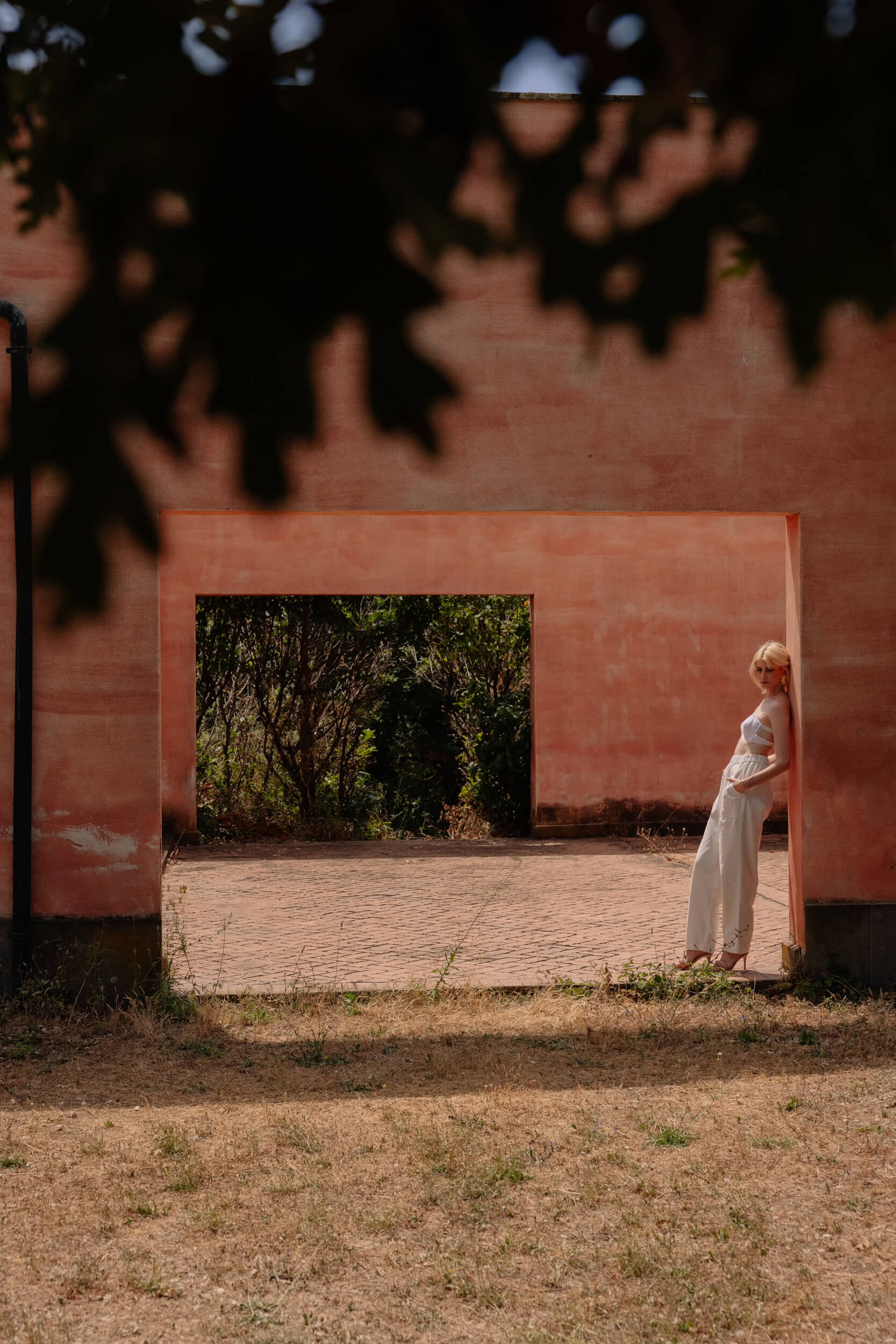
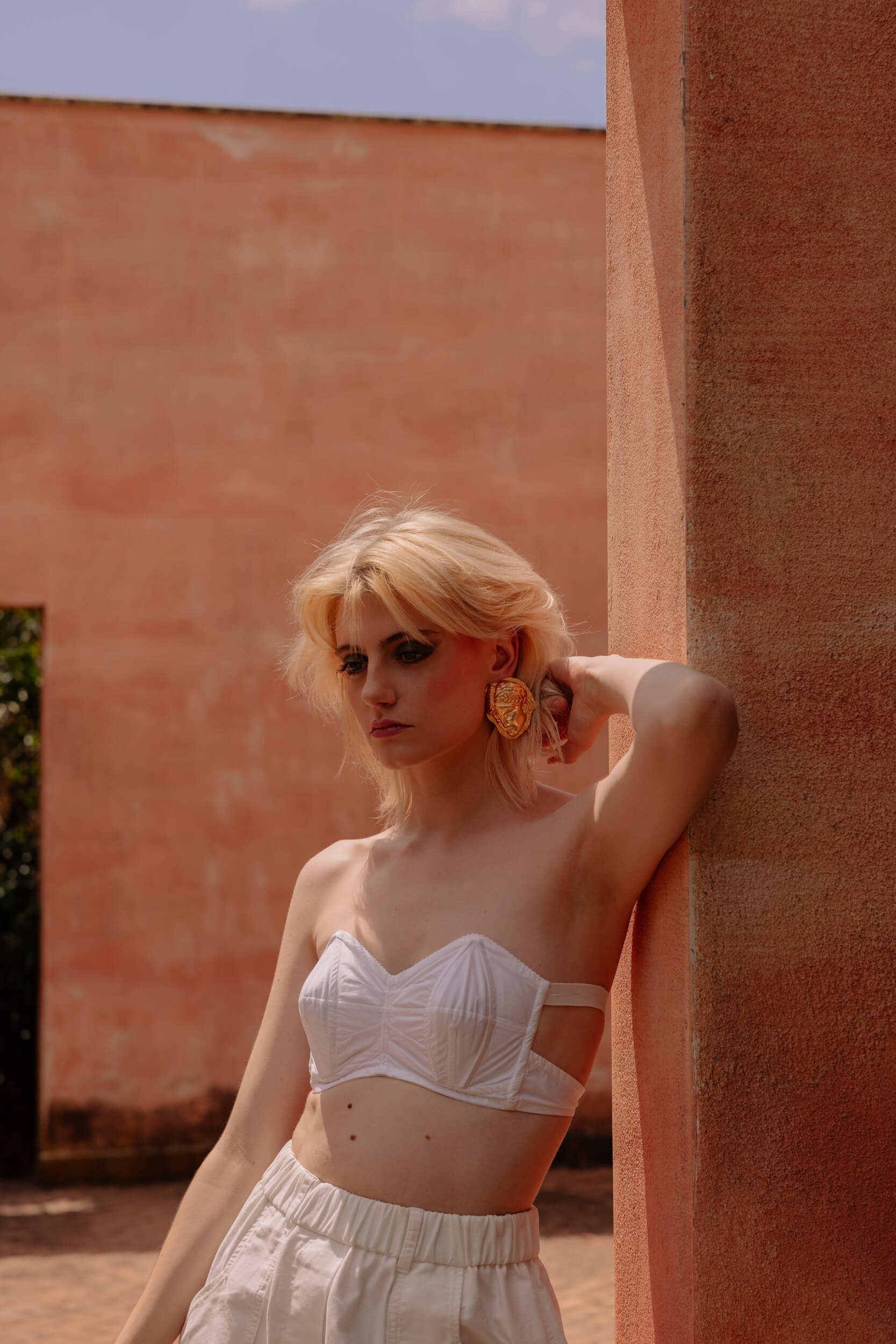
On September 28th, you will be in theaters with “Non credo in niente”, the directorial debut of Alessandro Marzullo. What was your first reaction after reading the film’s script?
This film is quite special because the director, whom I personally knew from before, didn’t send me the script initially. He intentionally doesn’t send scripts to actors. He first texted me saying, “I’m making a new film, and I’d like to talk to you about it”, to which I replied, “Can I read something?” and he said, “No, absolutely not, let’s meet and talk about it”. I think it’s a great approach. Talking with him first and then reading the script helped me understand many things. Alessandro told me exactly what he wanted to achieve with the film, how he envisioned the characters, and that’s great because it’s different from just reading a printed sheet with things written by someone you don’t know.
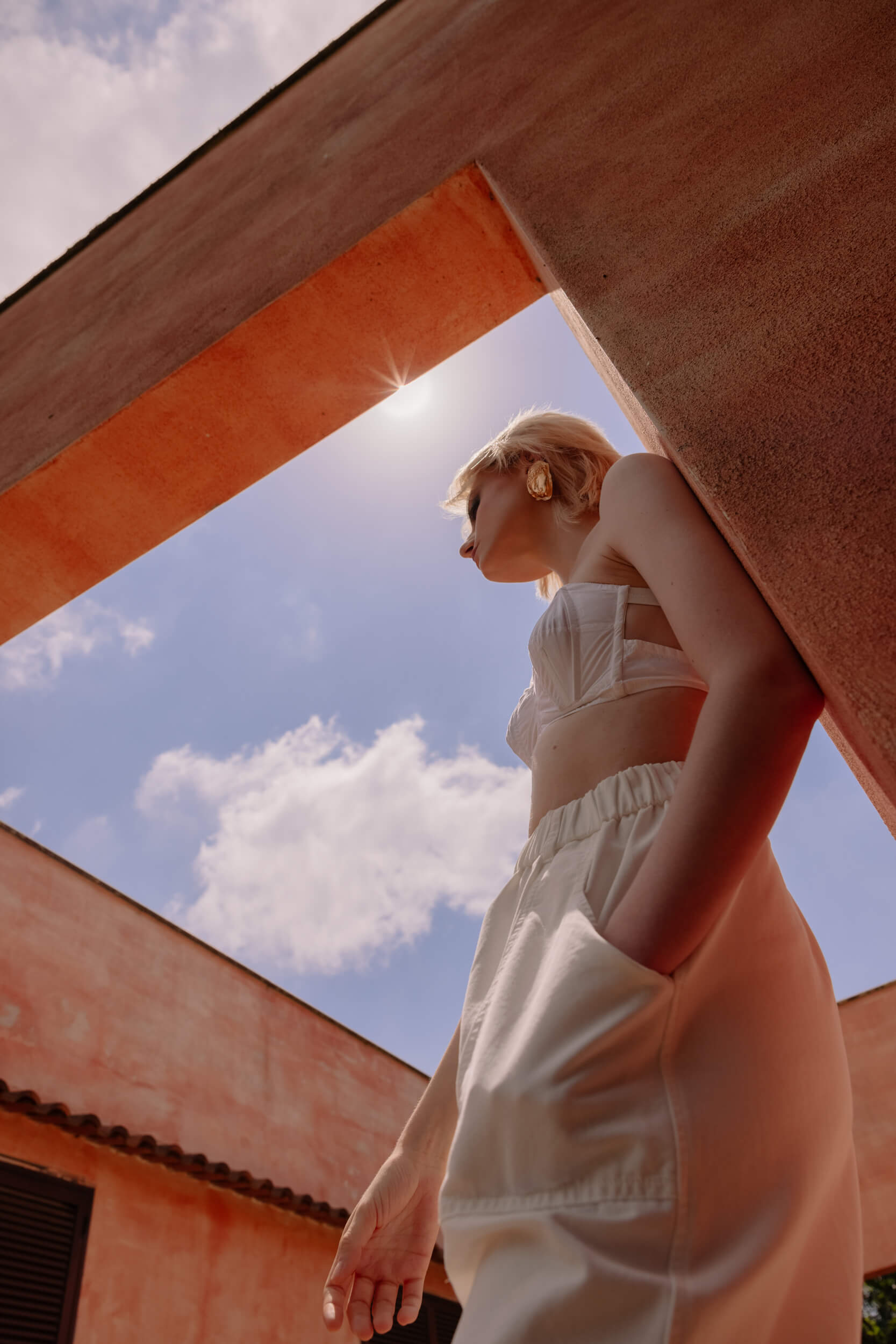
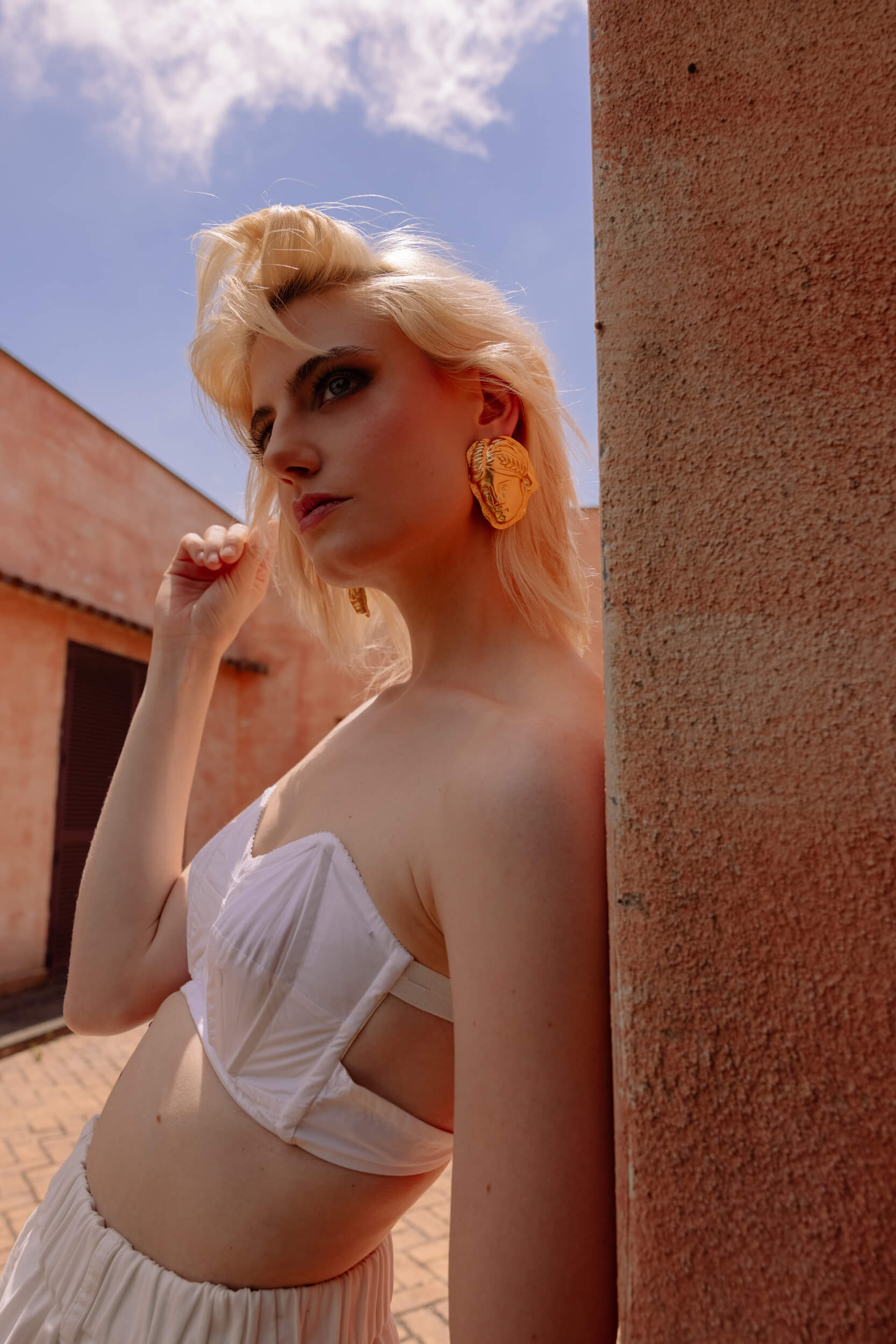
Indeed, discussing the project with the director from the beginning helps to understand the tone and interpretation you should give to the story. If you read the script on your own, there’s a risk of misinterpreting the intentions of the authors and the director, making everything more complex. What did you think when you first “met” your character?
Exactly, that’s true! And what did I think when I met my character? “Finally, a female character who is not a stereotype!” [laughs]. It’s hard to define her, and that’s a beautiful thing. Every time I receive character descriptions, which I imagine are roughly outlined to give an idea of what it’s about, they are always black or white, “she’s good” or “she’s bad”, “she’s unlikeable” or “she’s likeable”. Instead, Number 4 is all these things together; she is a real person.
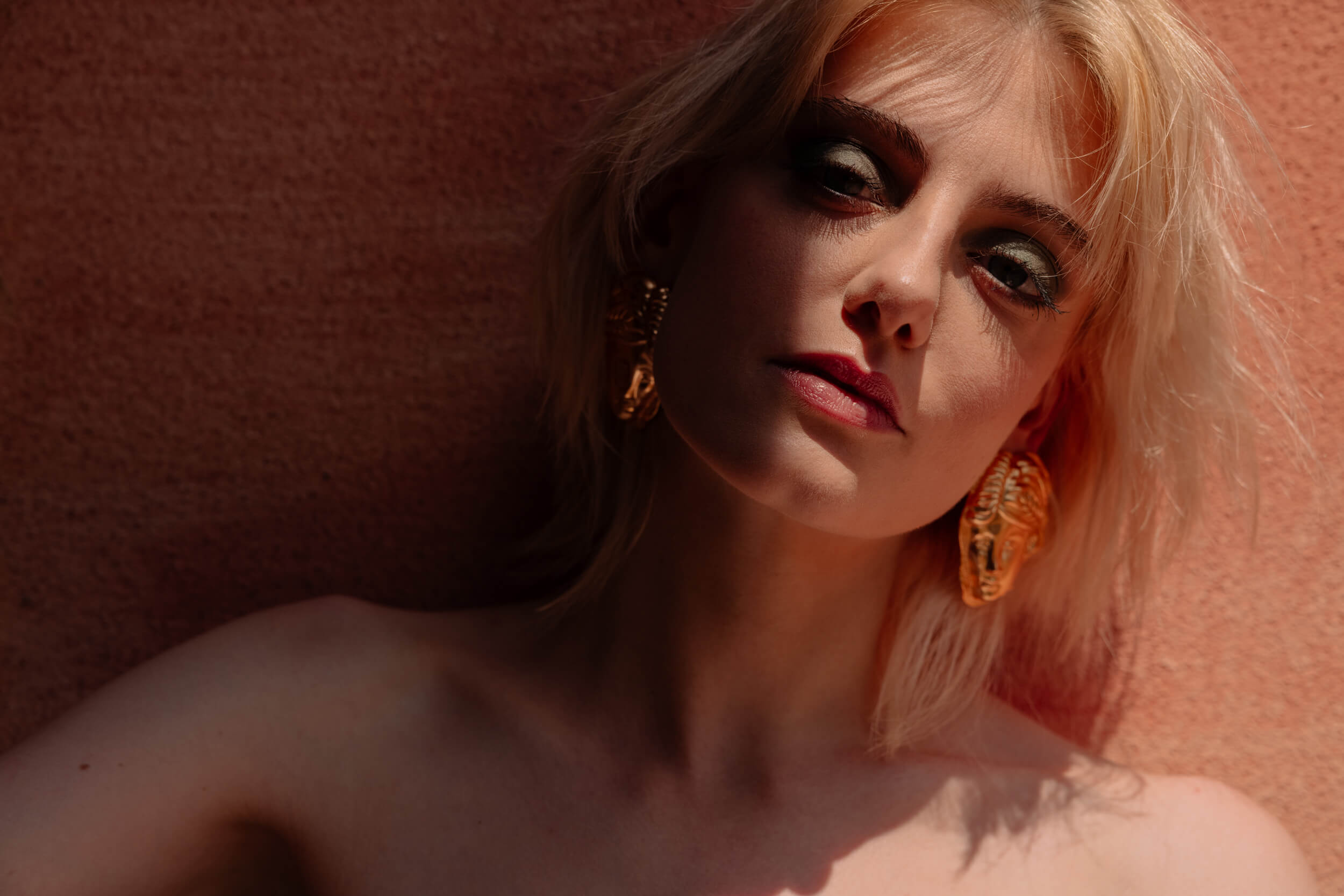
“Finally, a female character who is not a stereotype!”
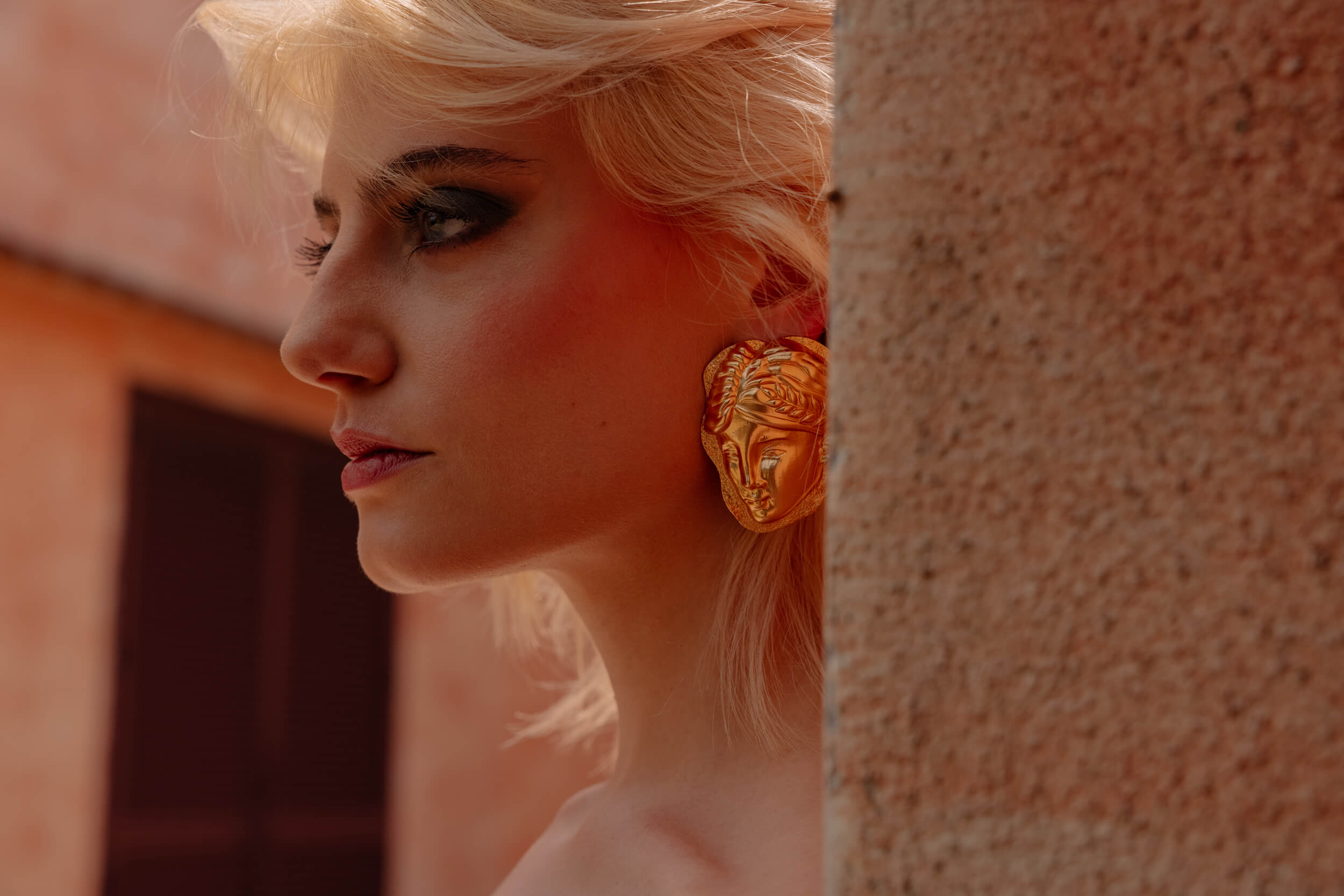
Actually, I found her difficult to understand and interpret, at least at the beginning of the film, enigmatic to the point that I couldn’t imagine what was going on in her mind, which made her very interesting. Additionally, the story is very current, dealing with the existential crisis faced by people in their 20s and 30s, the one that persuades them to believe in the convenience of “not believing in anything”, as the title suggests. As you are also part of this generation, how strongly do you perceive this “existential insecurity,” and how do you cope with it?
Well, first of all, I agree with what you said. As for the rest, it’s a complicated question… I strongly perceive the insecurity of our generation. I’ve always loved older cinema, especially in terms of the way films were made. In the past, directors and producers would come together, discuss the story, and if they liked it, they would produce it. Nowadays, it’s much harder, partly because there are many more people who want to work in this field, and partly because there’s less interest in a certain type of cinema. So, in my own little experience, it’s very hard to continue believing in what you like, in what you want to do. Every day you have to wake up and say to yourself, “Okay, I believe in this, I do it because it makes me happy”, as waiting for external validation is futile. I think much of the frustration comes from always expecting something from the outside, which is normal because “you also need to make a living”, but what really matters is how you feel inside, and you have to fight to preserve that because giving up is too easy.
Even just trying to create something can prevent you from failing.
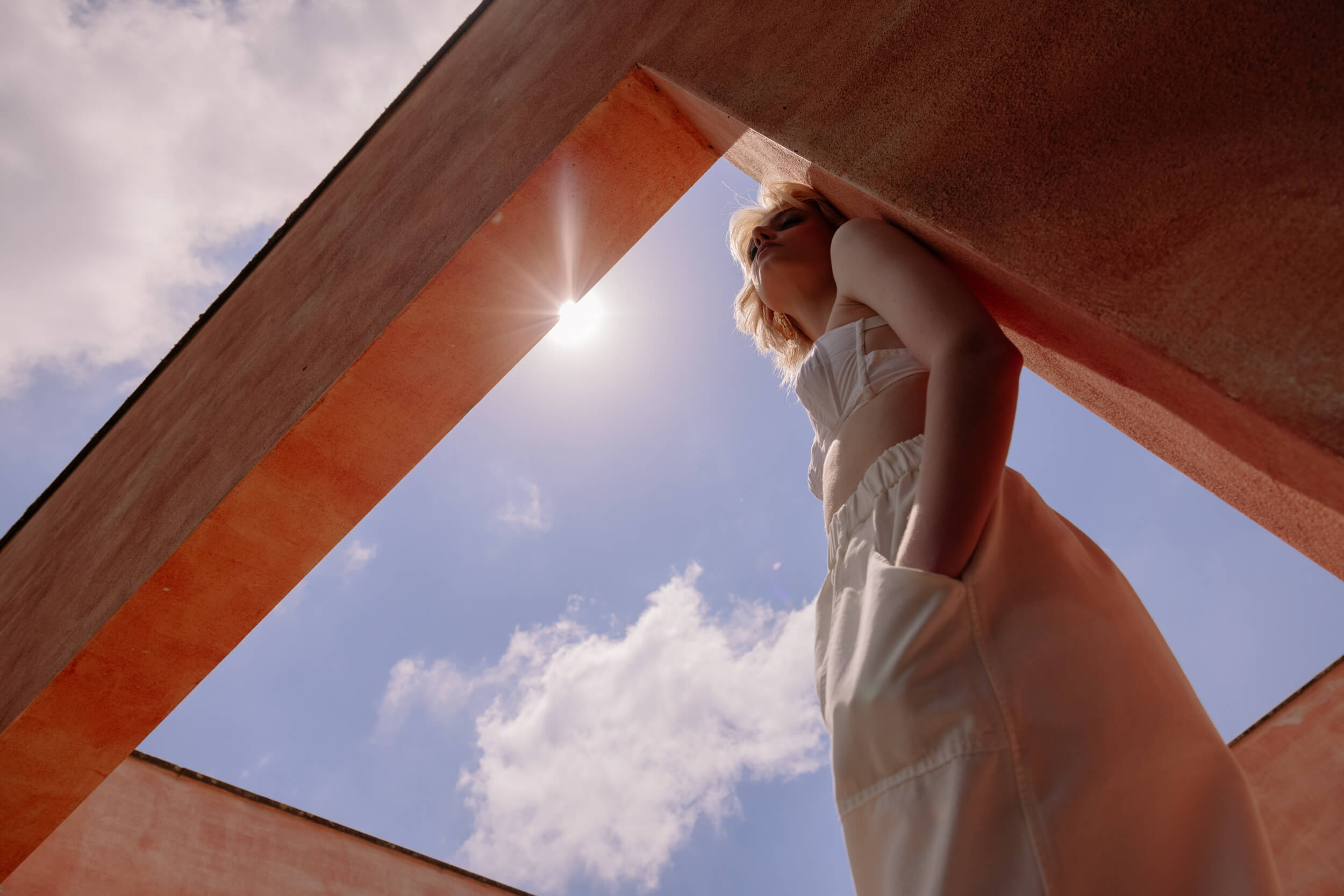
What gives you a sense of security in a world where nothing seems secure?
Definitely, feelings, love, and affection are crucial for me. Without them, the world would be horrible.
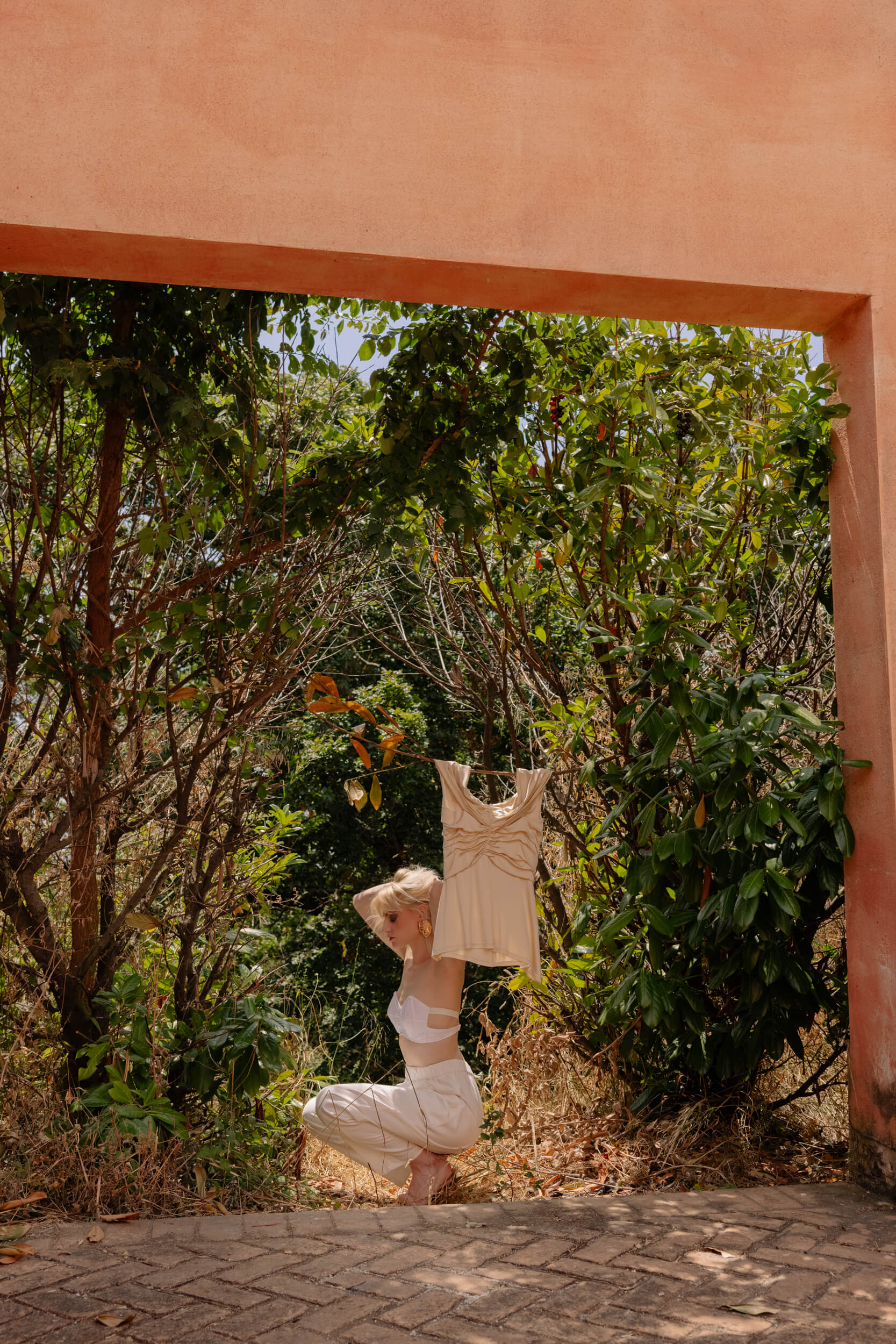
Lost between the need to work to make a living and the desire not to limit yourself to living only for work, the film’s characters act (or don’t act) against the backdrop of an inhospitable Rome, especially towards young people. How well did you manage to adapt to such an environment? Was it an immediate feeling, or did it require imagination and special preparation?
Well, I think Rome is welcoming, but only if you can follow its flow, you have to be a part of that flow. For us, like you living in Milan and me being from Udine, it’s harder to adapt to the rhythm of Rome, but once you adapt, you can live well there. For example, I used to always be early, but now I’m always late [laughs]. To get into the atmosphere of the film, I did a lot of self-analyses, as I always do, that’s my main study method. When Alessandro told me about what he wanted to do with the film, I immediately thought, “Wow, that’s exactly what I feel”, and it’s wonderful when you can work on a project that you feel represents something you want to communicate to the world. So, getting into the mood of the film wasn’t too difficult.
Then, it was fantastic to shoot it at night because we were telling the characters’ nights, the moments when their true feelings come out.
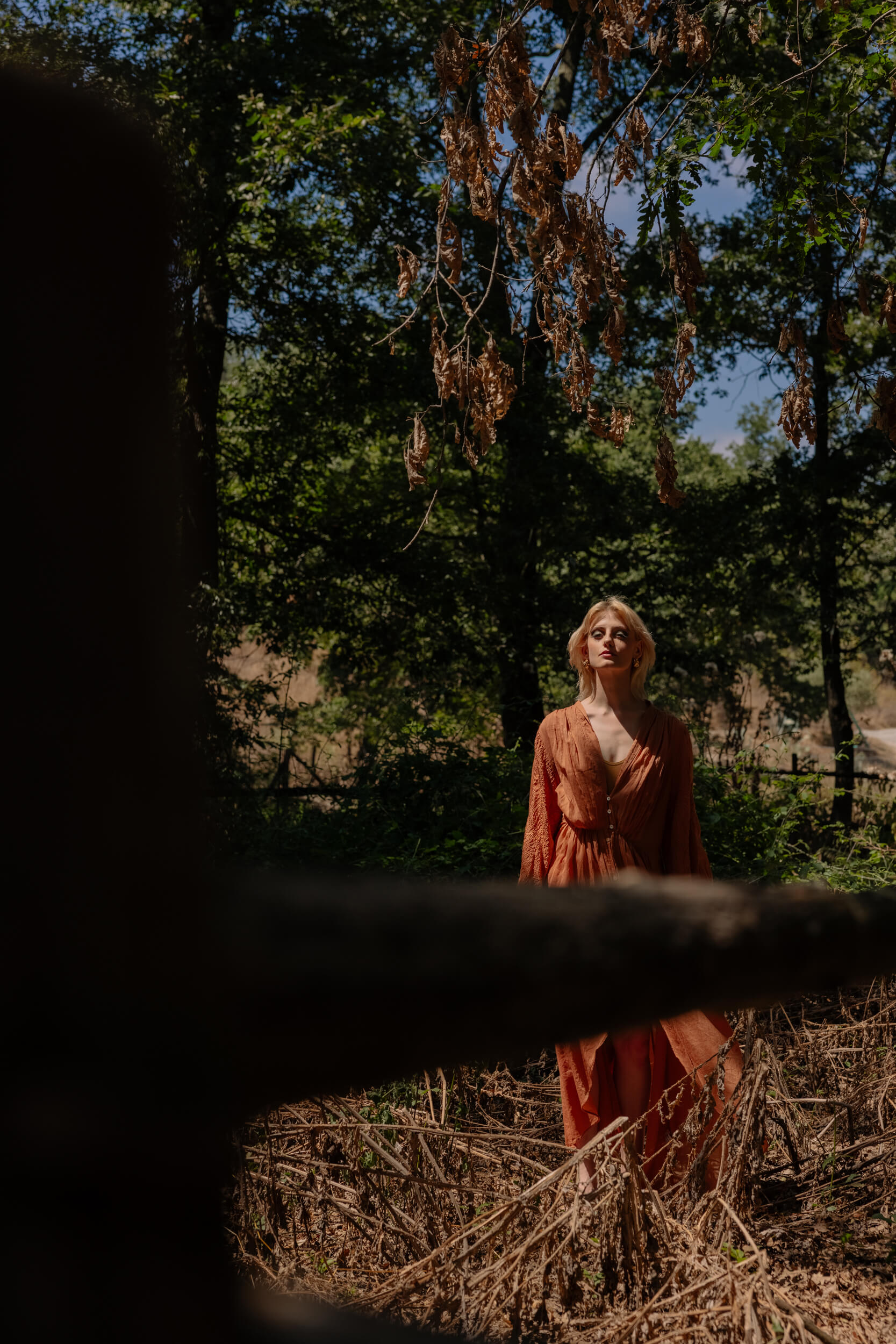
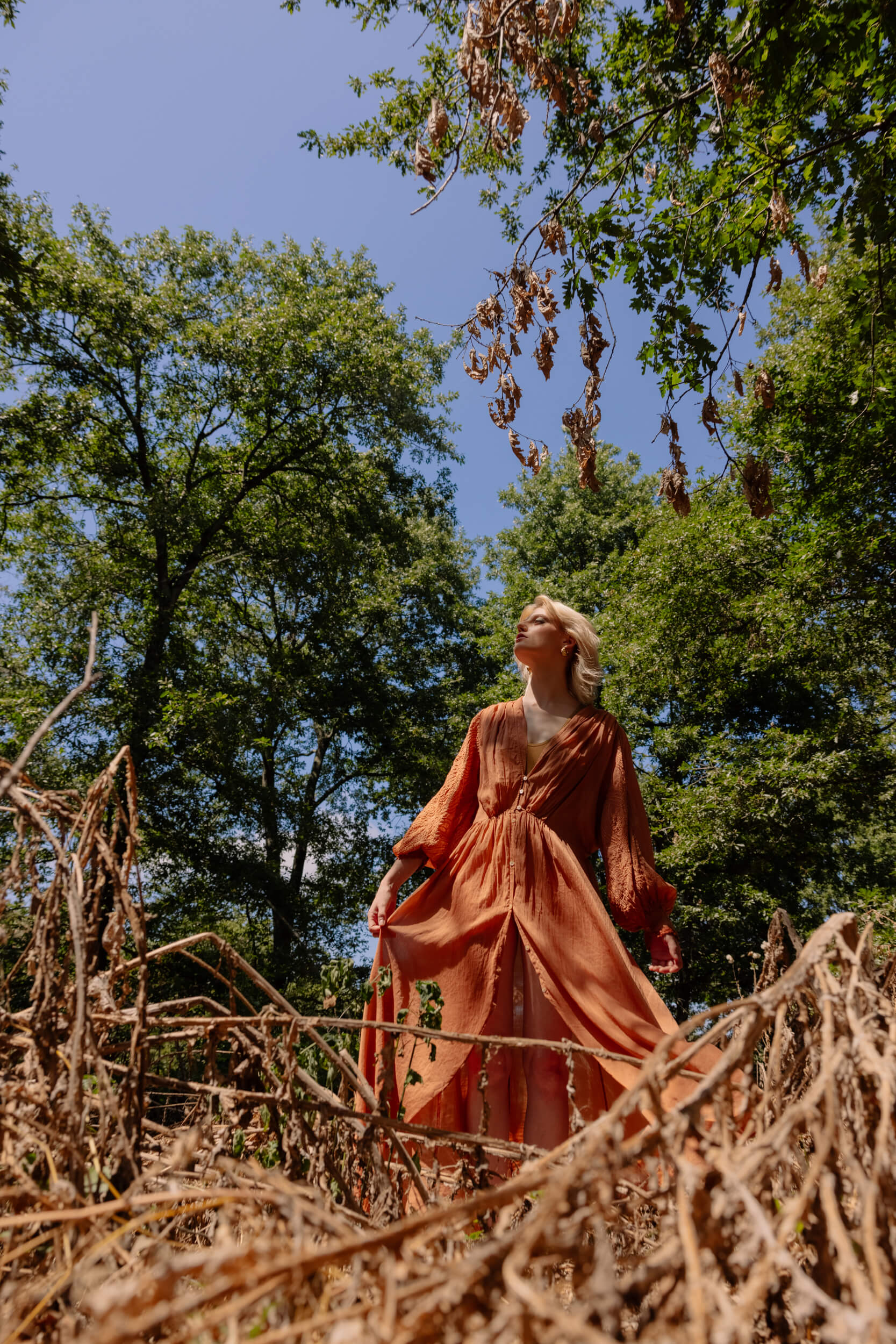
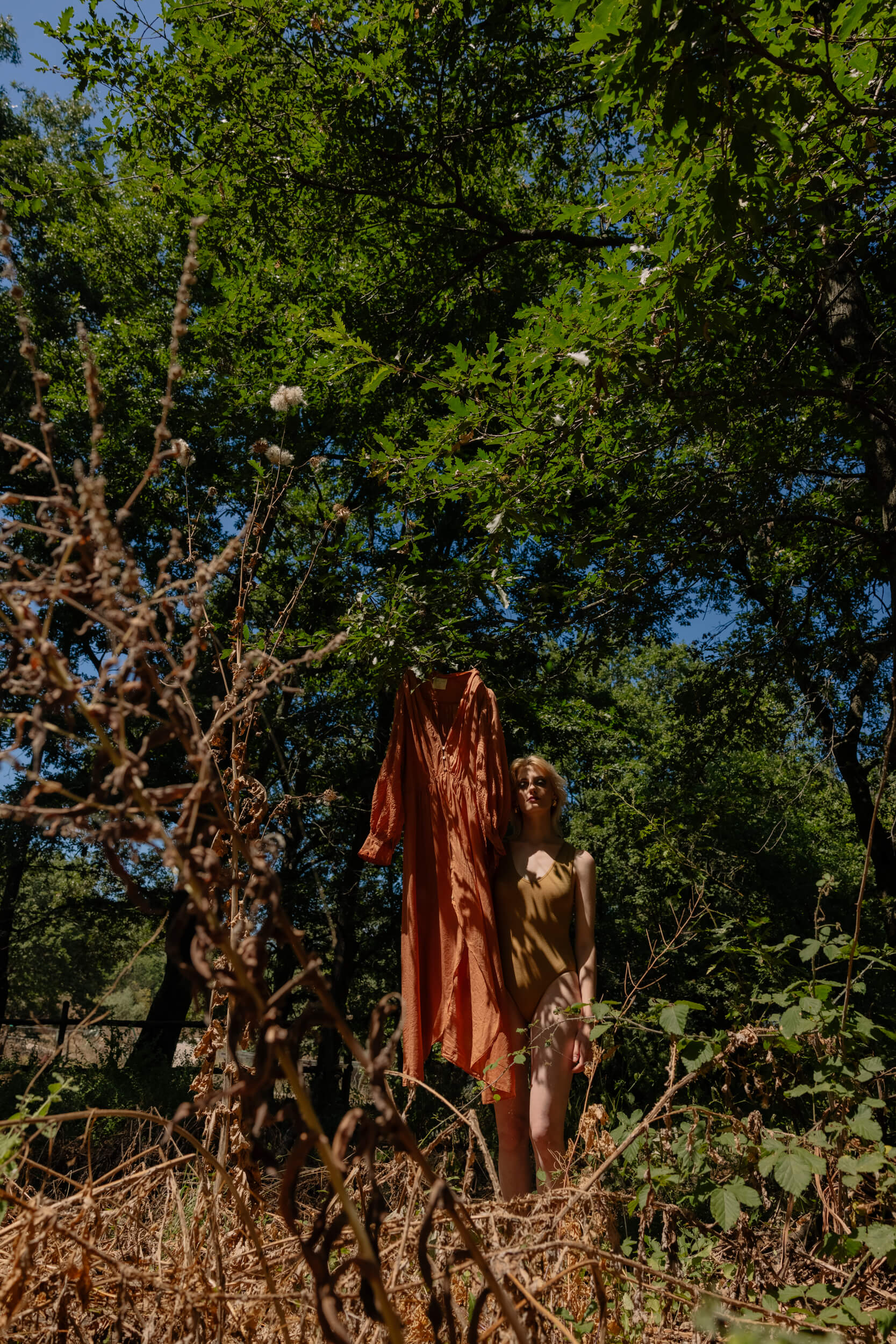
“It’s wonderful when you can work on a project that you feel represents something you want to communicate to the world.”
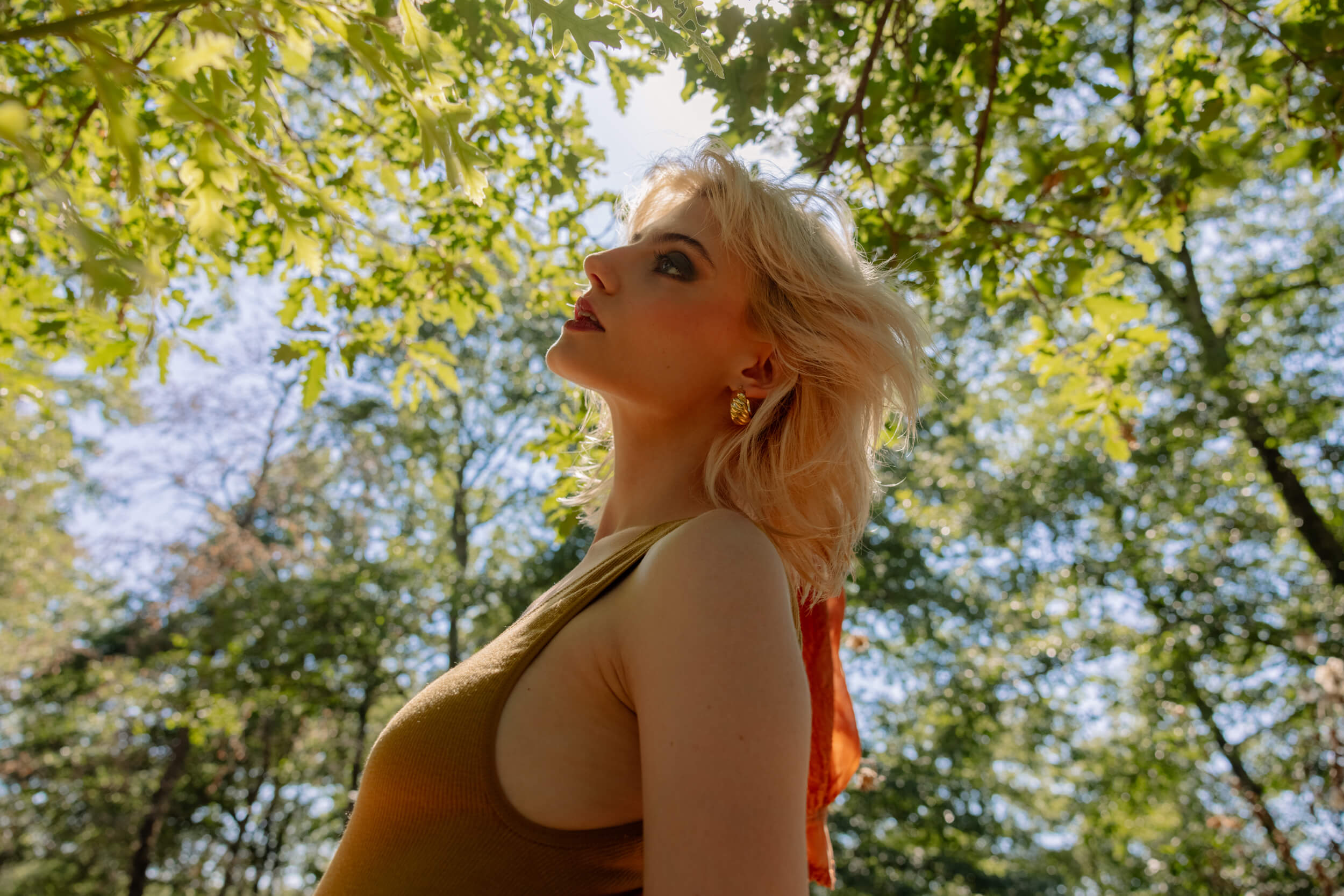
In particular, your character, Number 4, is a dissatisfied flight attendant who doesn’t take any action to improve her situation or pursue her dreams. What do you think is the cause of this existential paralysis? What advice would you give her if you could talk to her?
I’ve known many artists, and I’ve realized that there are incredibly talented people in the world who create amazing things, but then they don’t even try. As soon as the opportunity arises to take that extra step that might lead them to turn their art into their profession, they don’t do it. I don’t understand why. It could be insecurity because maybe, as we discussed earlier, they don’t try because they fear failure, or perhaps they don’t want to turn it into a job, that’s also a possibility. Pursuing your passions requires a lot of commitment, and it’s difficult to live in such an uncertain way. There are moments when you really think, “Why did I do this? I could have stayed home and continued studying Literature” [laughs]. As for Number 4, even though people usually tell me I’m nitpicky because I highlight things in the script, asking everyone on set about their characters and interrogating them to understand the character, in this film, I worked in a new way, and I didn’t need to prepare anything. Of course, we had rehearsals, especially for the longer and denser scenes, but it was a bit like doing theater, even though what we did during rehearsals wasn’t what we filmed in the end. Then, the fact that we were often shooting late at night or early in the morning, sometimes even at 5 in the morning, we were exhausted, devastated, but I think the fact that we were there, at that moment, with Alessandro giving us directions about what we should have done and the thoughts of our characters, made everything even more beautiful because he doesn’t tell you what to do, he tells you what he wants, which is different.
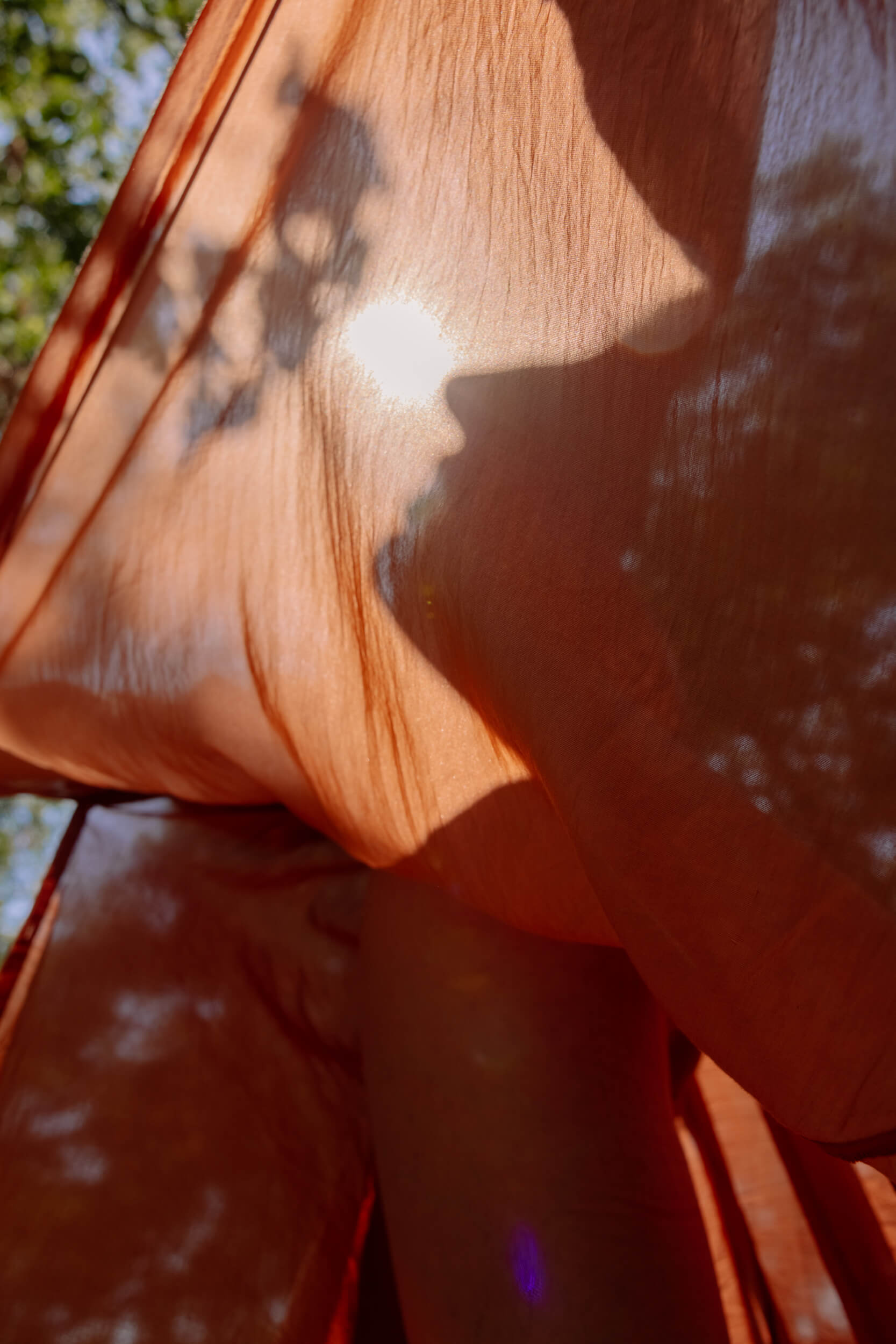
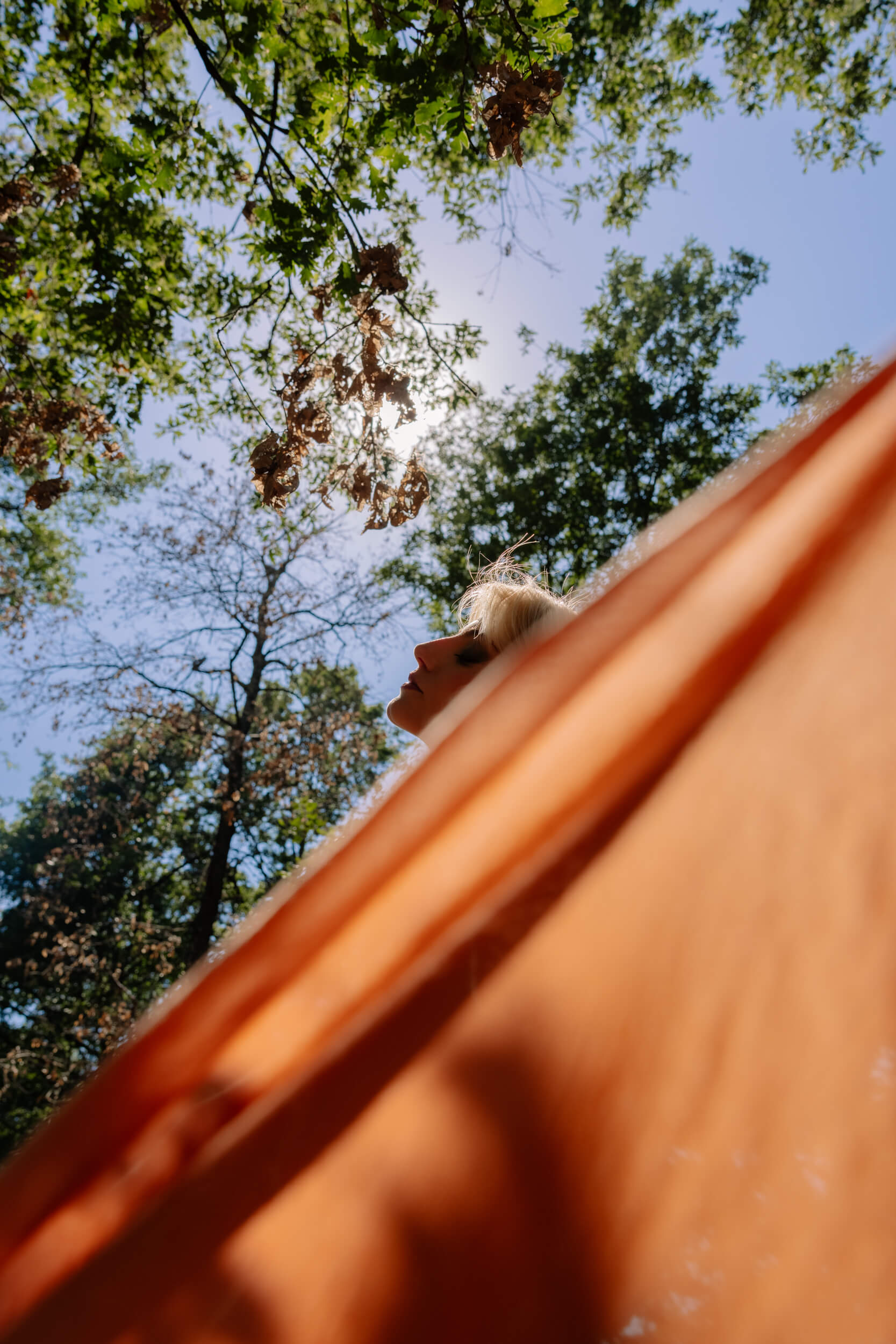
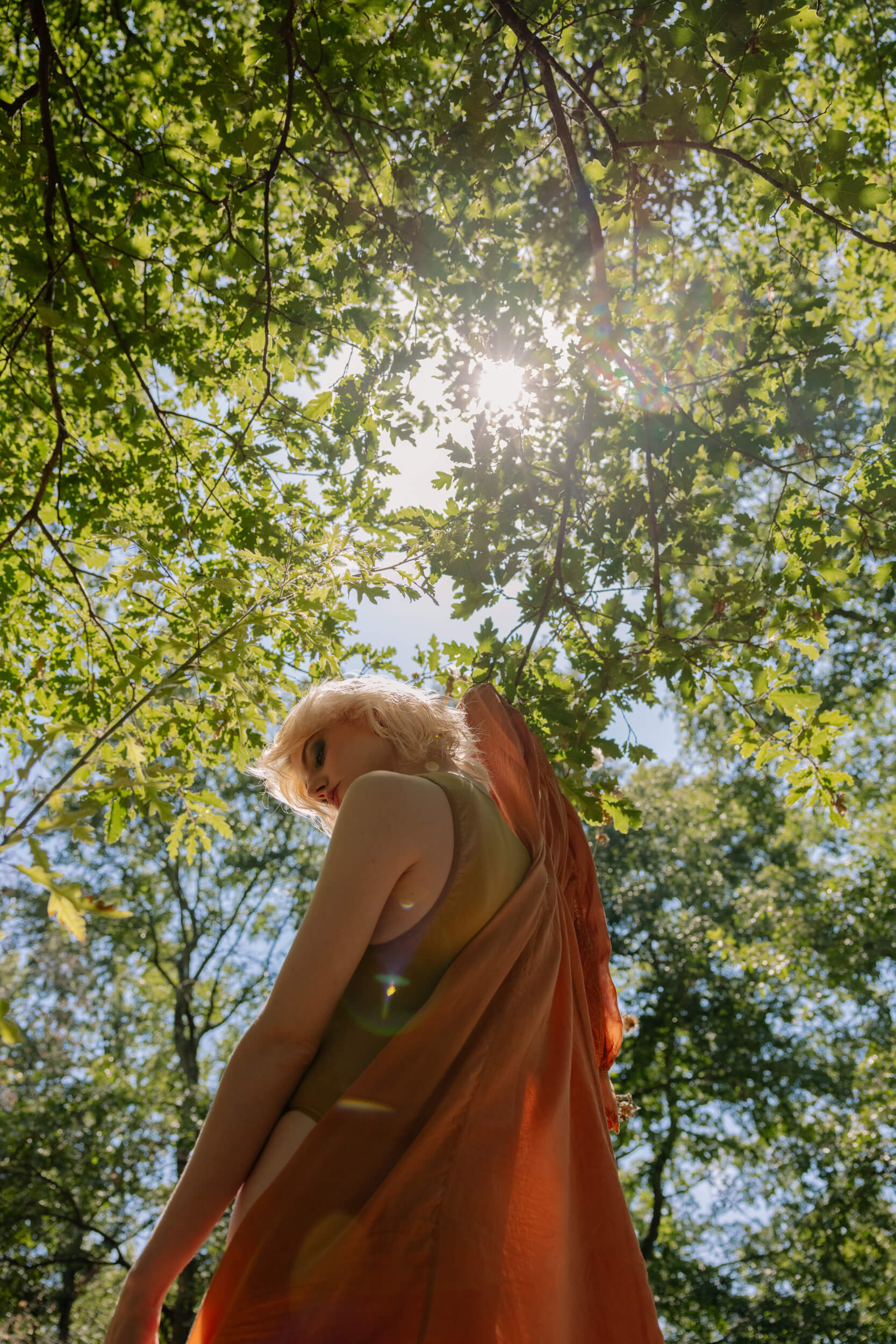
What do you think causes this anxiety about productivity and perfection and the refusal to accept the possibility of failure that affects our generation? How do you think we can overcome it?
I believe we should make more mistakes. That’s the conclusion I’ve come to. I want to allow myself to be terrible [laughs], I want to go to an audition and do it poorly so that I don’t feel anxious anymore, knowing that if they don’t choose me, it’s not the end of the world because I did it poorly. Striving for perfection doesn’t lead anywhere; on the contrary, I think perfection is sterile. Instead, art is imperfect, full of mistakes, and that’s what makes it beautiful. We should learn to laugh when we make mistakes, when we fall in the middle of the square in front of everyone [laughs].
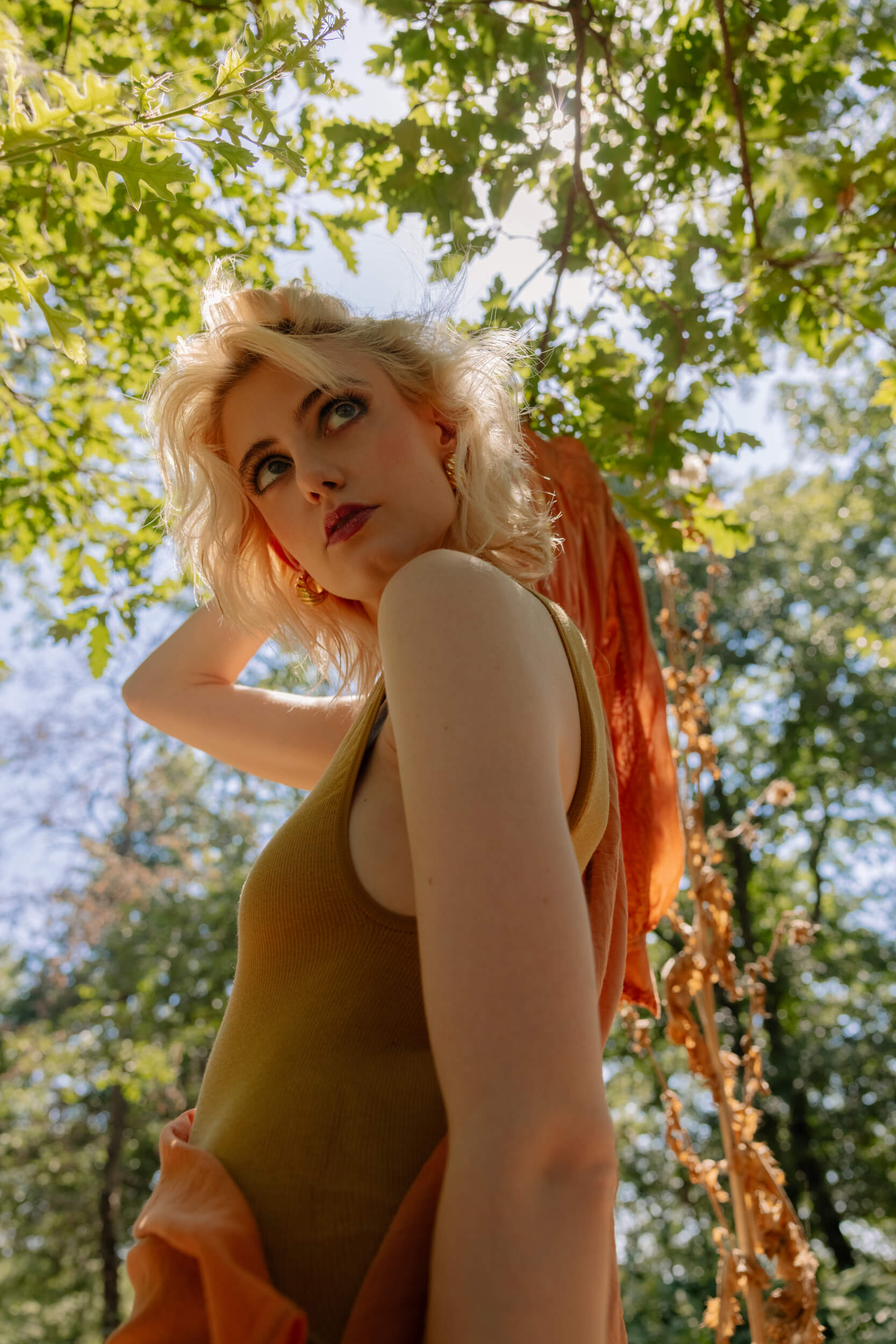
“I believe we should make more mistakes“
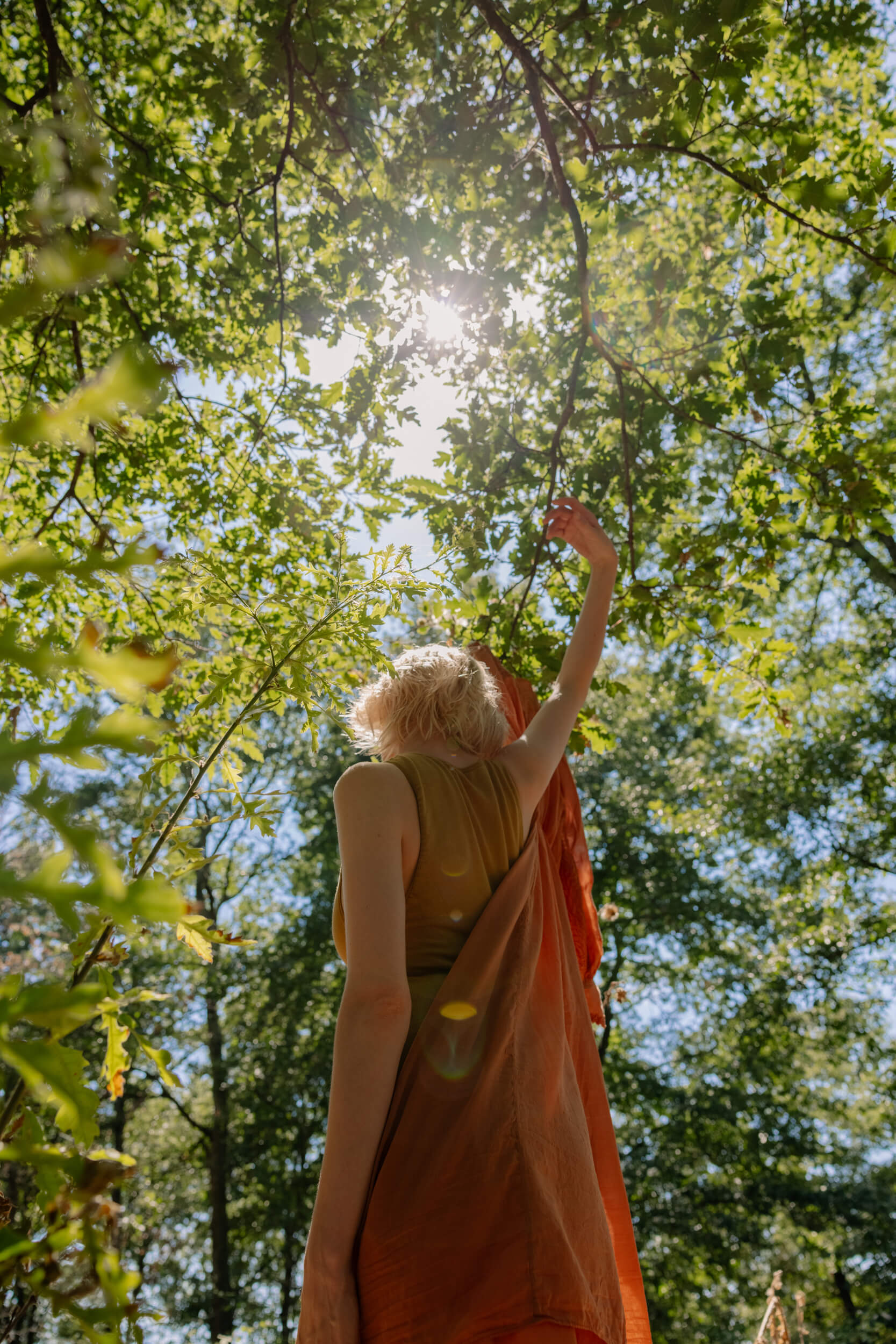
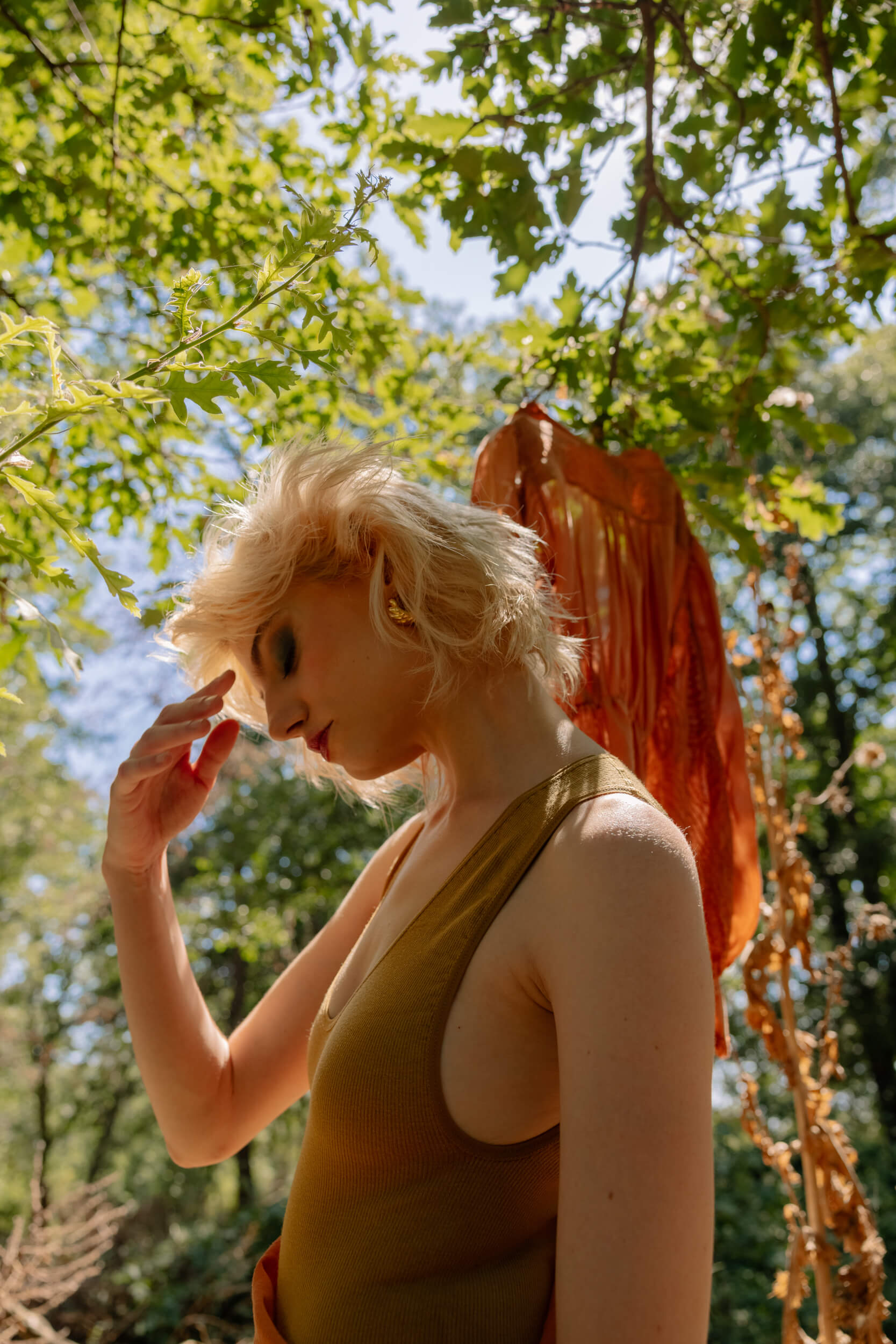
Do you think putting aside one’s dreams and artistic aspirations is the unhappiest choice a young person can make? Have you ever found yourself in a similar situation, where you “risked” having to make this unhappy choice?
Absolutely, but it has always been a temporary thing because I’ve never considered giving up everything and doing something else; that’s inconceivable for me. I think it’s sad to abandon one’s dreams; it’s not worth doing things if you don’t have dreams. These dreams don’t necessarily have to be related to work; one can create art without turning it into a job; the important thing is to do it. The problem is that most people won’t do it if it’s not their profession, and that’s a shame. The truth is that we need fewer working hours a day to be able to dedicate ourselves to our dreams.
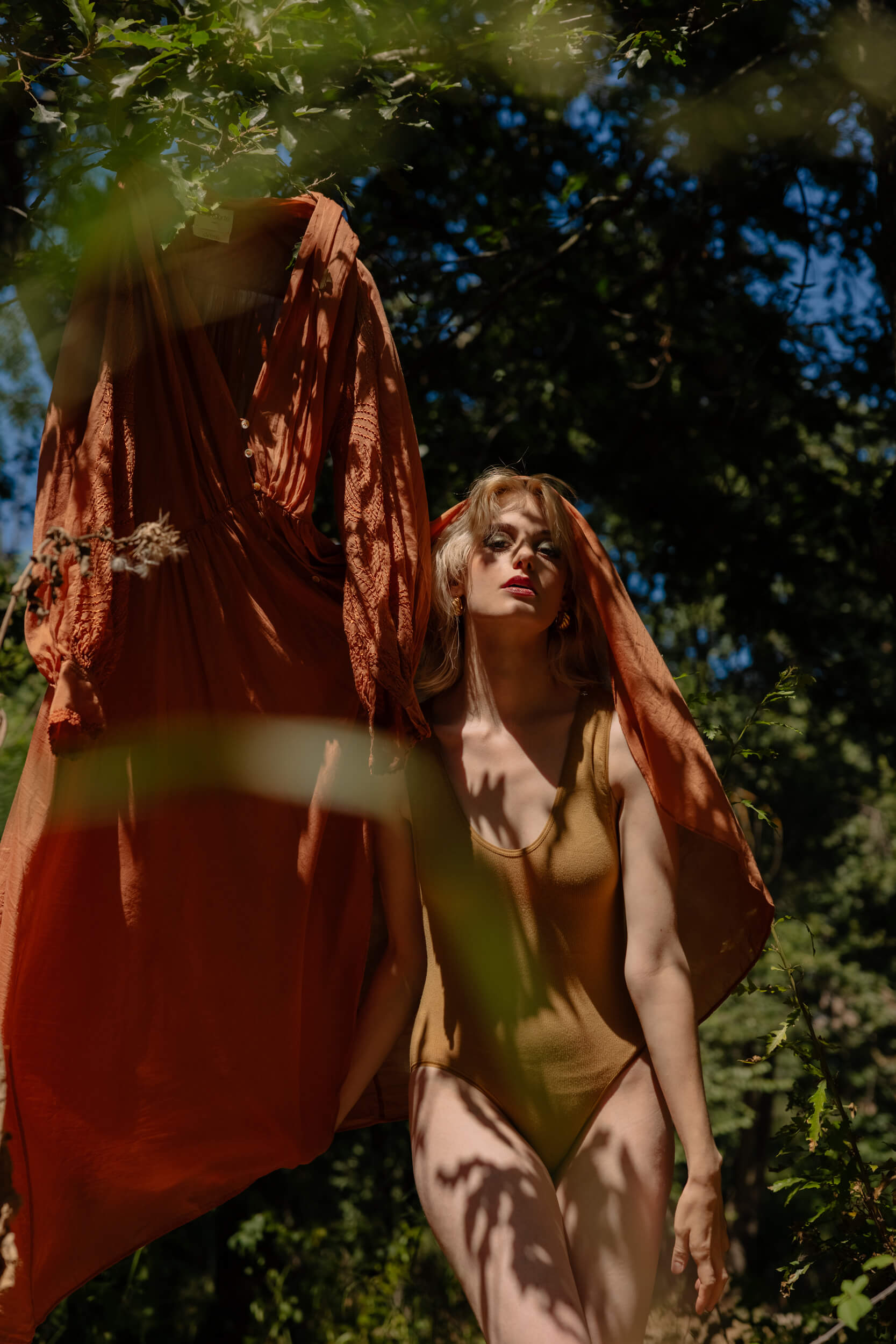
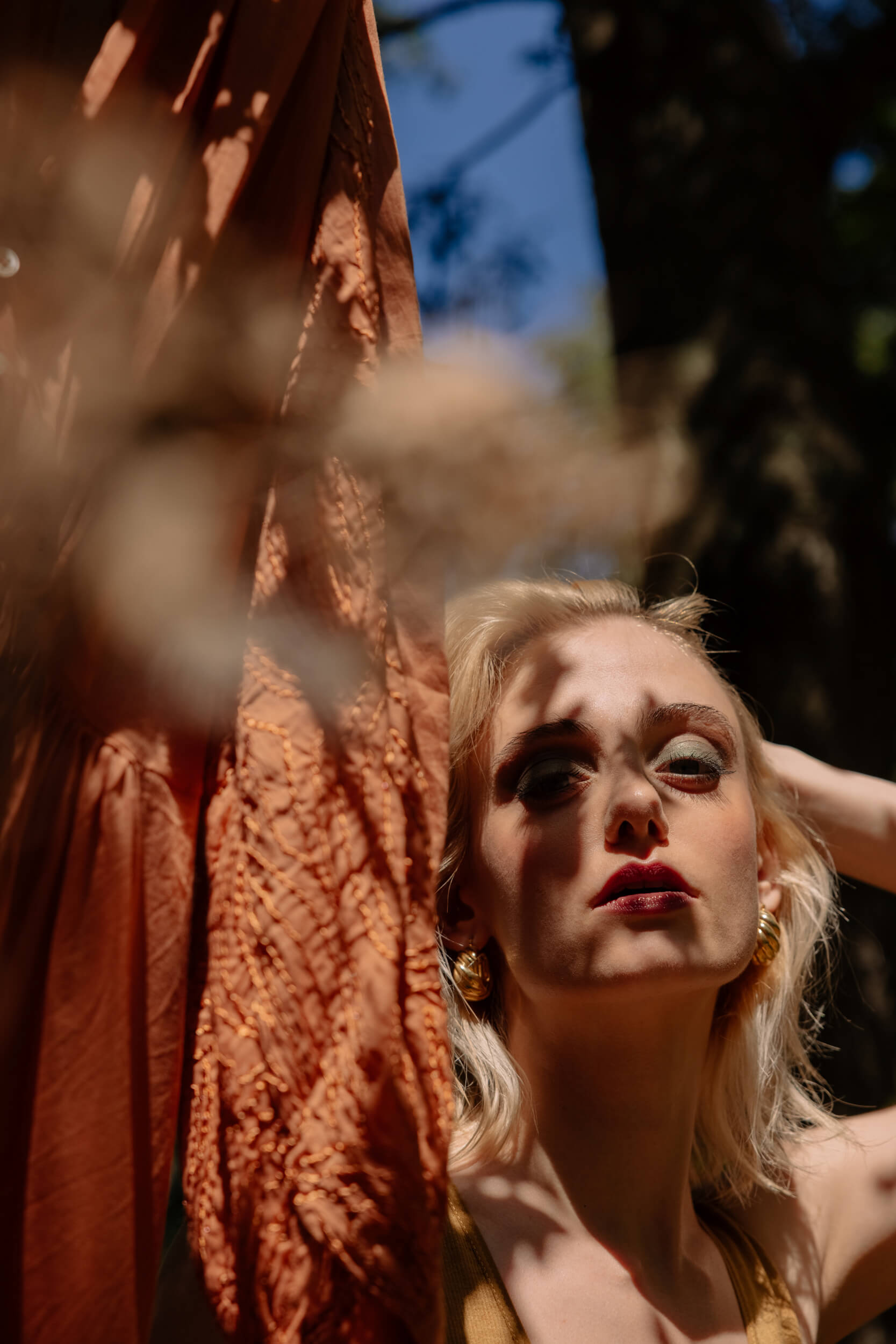
And what don’t you believe in? What do you believe in?
I believe in things that make me feel good. Only when something makes you feel good, it makes sense; I don’t believe in destroying oneself to achieve something.
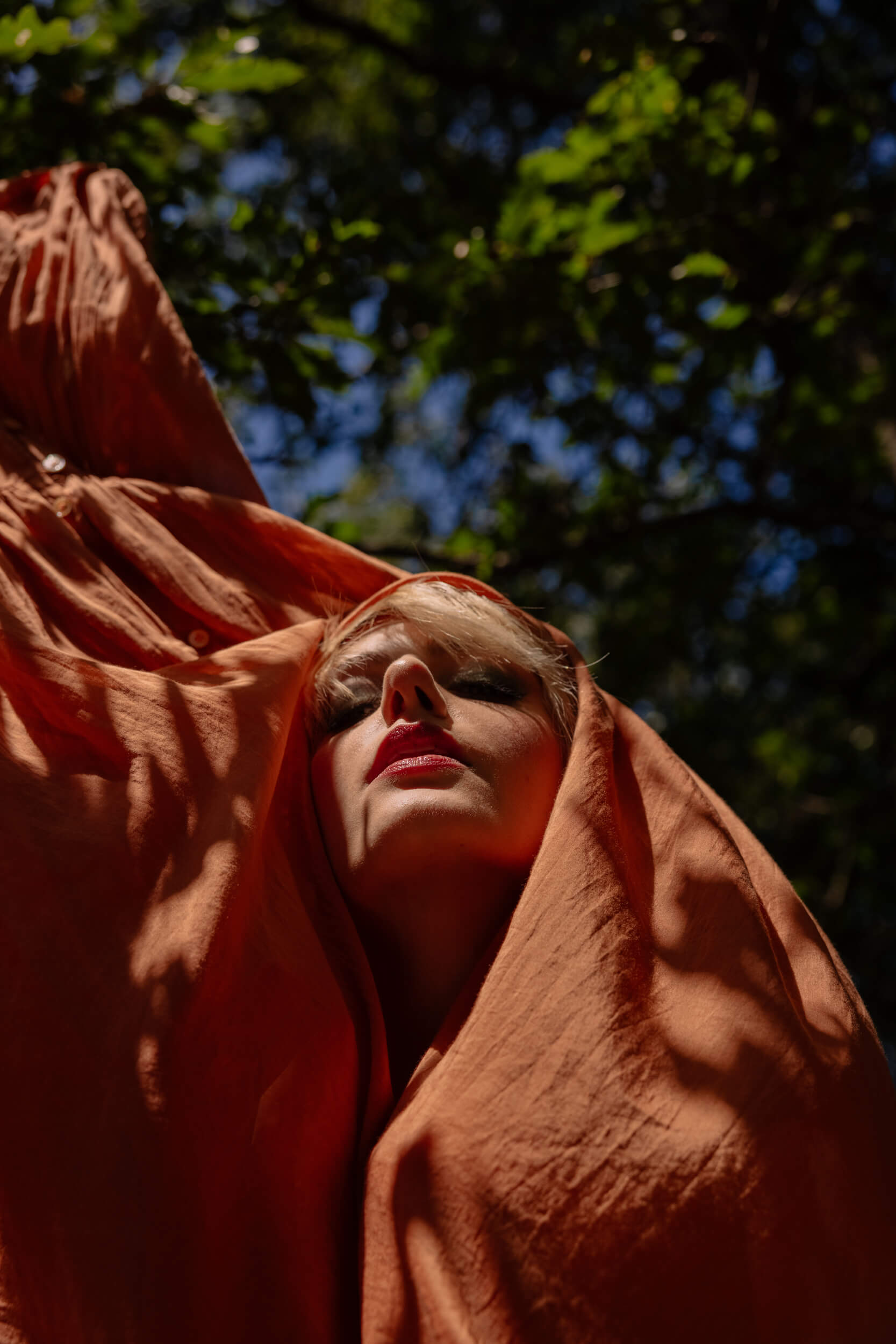
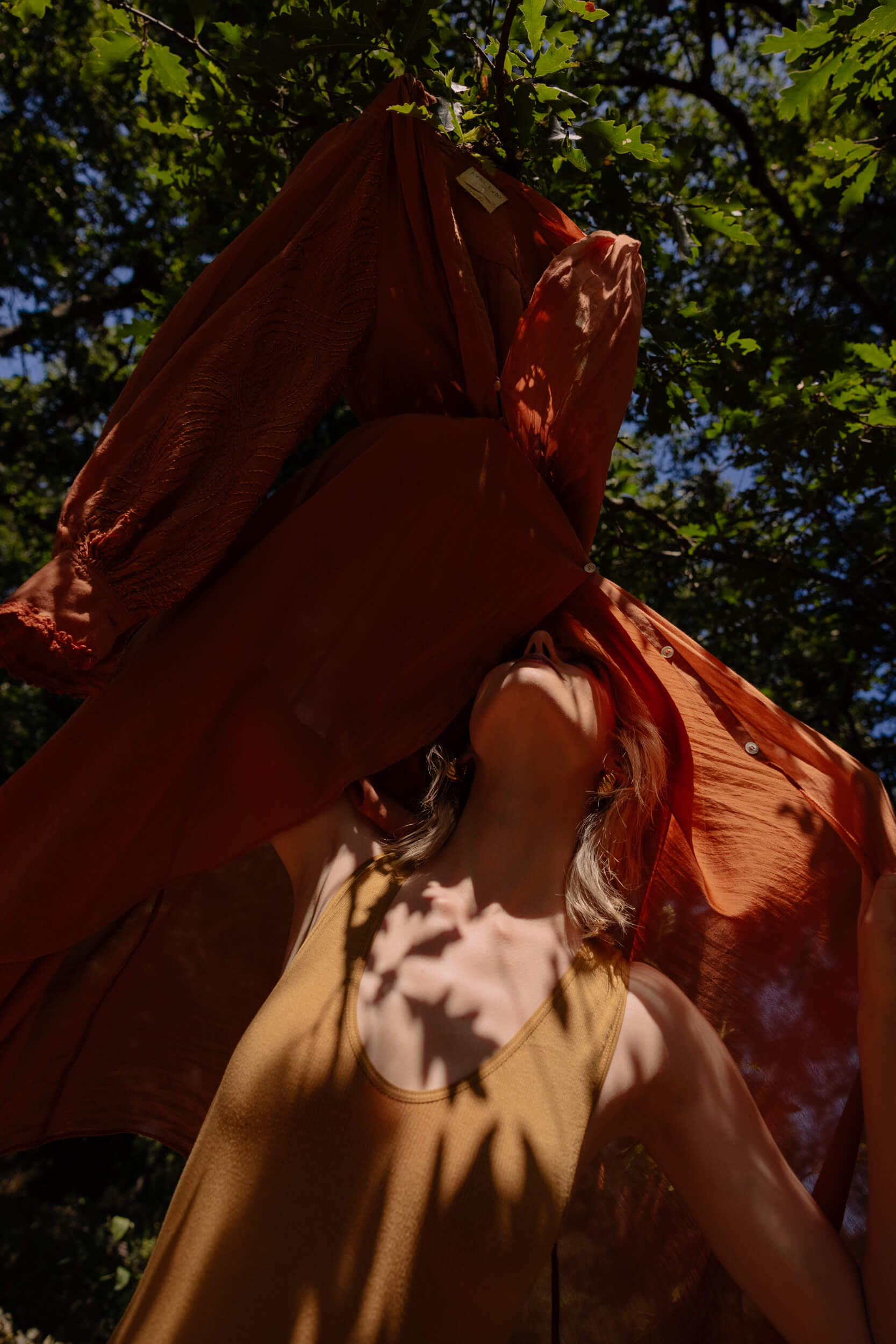
The nightmare of being passive spectators of the best years of our lives is a fundamental theme in the film, and it’s often what keeps me from sleeping soundly, the thought that prevents me from falling asleep. How do you manage to live in the present, if you can manage it?
I can’t do it every day because sometimes you have to live with anxiety, and you can’t but wonder, “Where am I going? What am I doing?”, but often logic comes to my rescue: if I wake up in a bad mood because of the thought that I have to do a series of things that have nothing to do with my work, and it bothers me, then I reflect on it and say to myself, “Who cares” [laughs]. I’ve realized that I need to enjoy the present, always finding a moment to do something I enjoy, like watching a movie or playing with my cat, spending time with my boyfriend. I don’t know if you ever look back with nostalgia at your past, but I do it, and when I do, I never think about work-related things.
That’s why I try to enjoy the rest. Many things seem obvious but they are not.
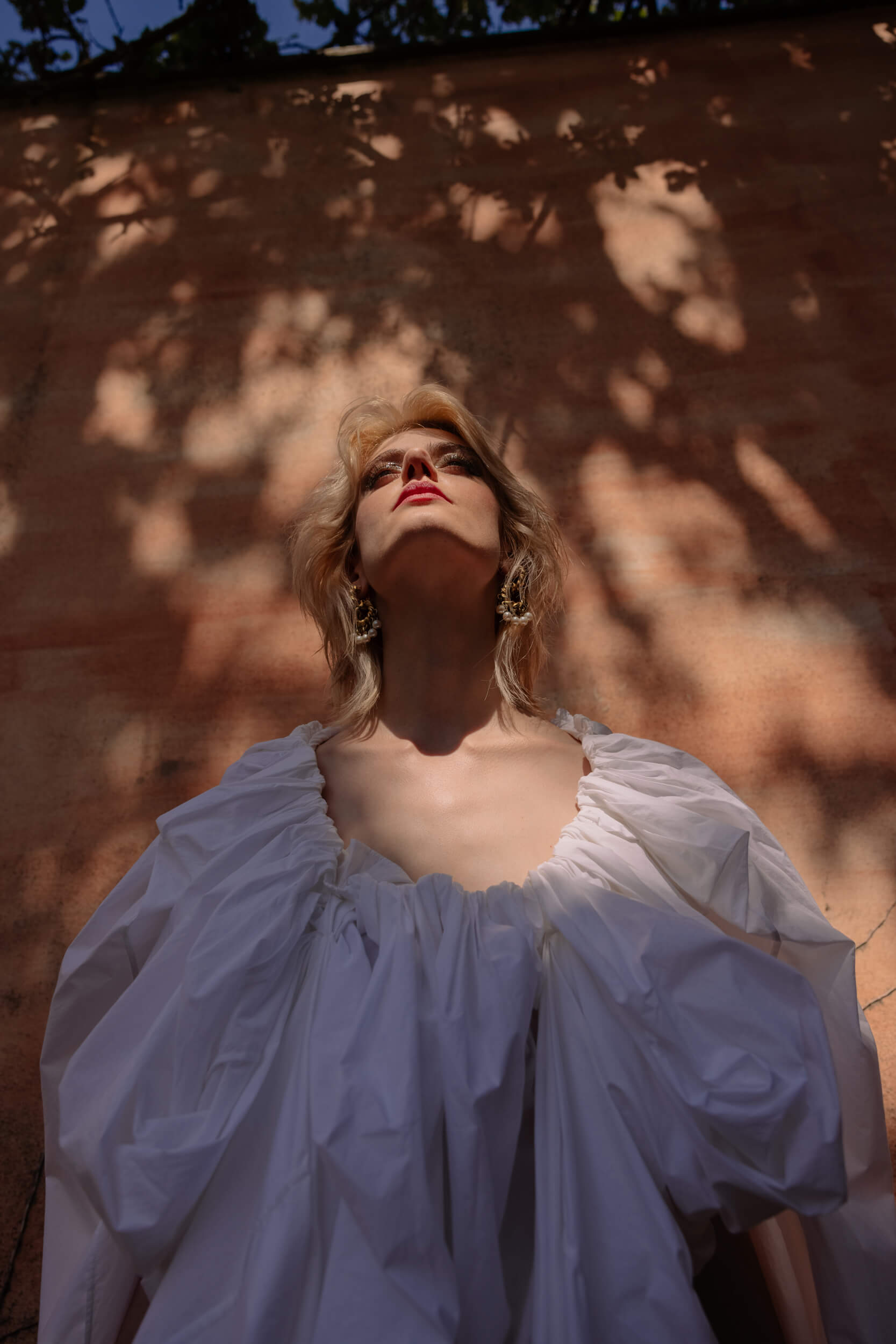
“I’ve realized that I need to enjoy the present”
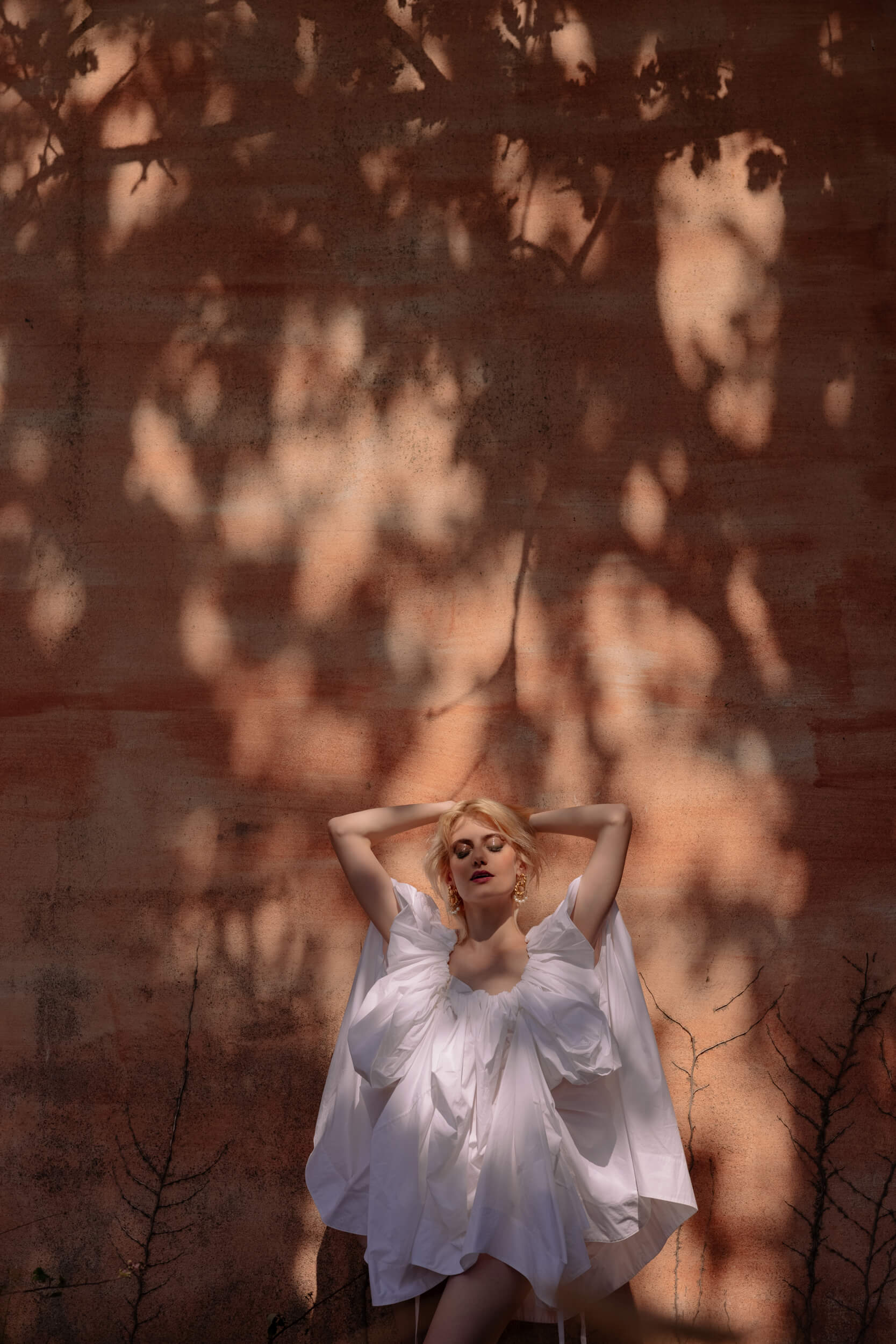
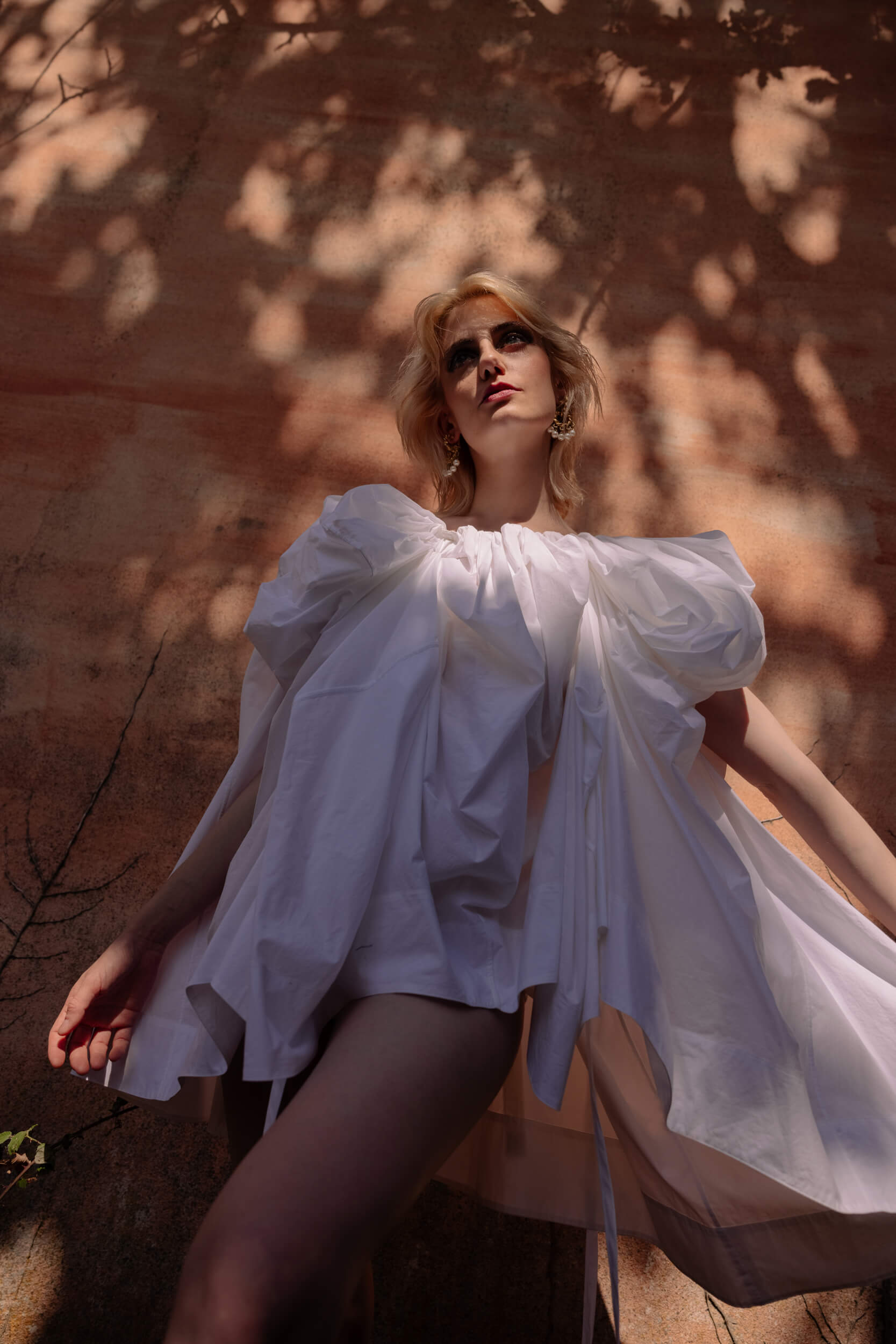
Did you discover something new about yourself thanks to this film?
Yes, I discovered that I used to procrastinate a lot. In Number 4’s shoes, I was always thinking, “Why doesn’t she do things?” and that made me reflect on how I, too, was not doing many things that I kept putting off and postponing. So, I said to myself, “Now I’m going to get on with it and do them”. Now, I’m working on my music, my book, and all my projects, so it was very helpful.
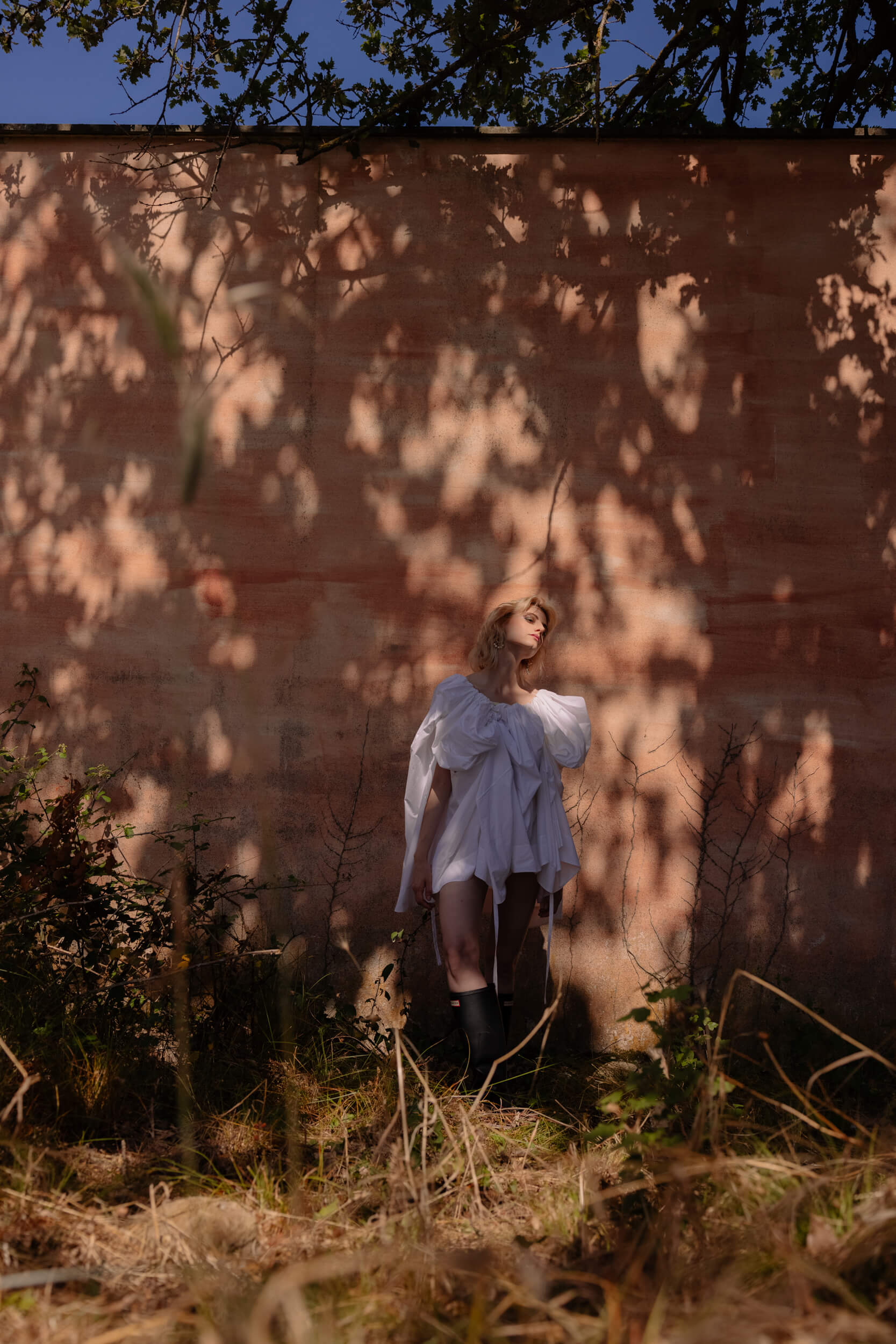
Speaking of music, the film’s soundtrack plays an important role as a sort of thread connecting the four parallel stories of the characters who never meet, despite having a lot in common. I know you are a musician; what does music mean in your life, and what role does it play in your daily life?
Music is fundamental for me; I sing or play every day. I’m currently working on my first EP, which I’ve been doing for years, but this year I’m actually doing it.
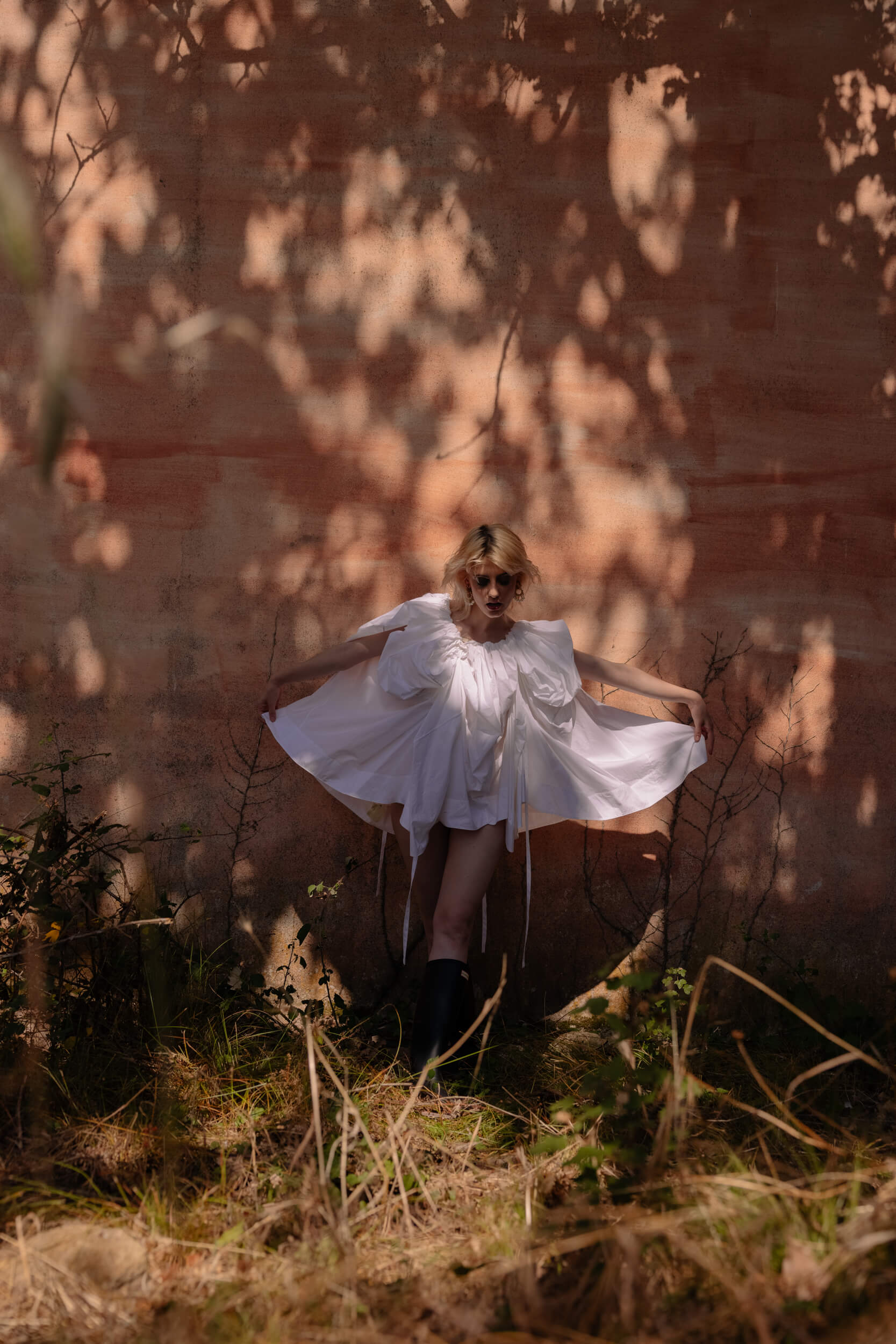
Can you describe a song that represents this particular moment in your life?
You know, I wouldn’t choose a song with lyrics. Lately, I only listen to classical music. I really like Mozart, for example. Classical music represents this moment in my life, music without words because there’s always so much noise.
What makes you say “yes” to a project?
Talking with the director. I’ve come to this conclusion, especially after talking with Alessandro: the director makes the difference in a film. All directors have to manage the set, handle the story, deal with the actors, and manage all the people involved. If someone is a strong director, you can see it on the set, in my opinion.
When you create a character, do you rely more on rationality or instinct? How was it with “Non credo in niente”?
For me, instinct comes first, which I then try to rationalize because instinct alone isn’t enough. The first thing to do is certainly to understand how you feel about the character and the story, and this is something you grasp instinctively. However, you need to study and understand what to do to create a personal narrative arc that may differ from the script because what you feel the character is experiencing is different, in my opinion.
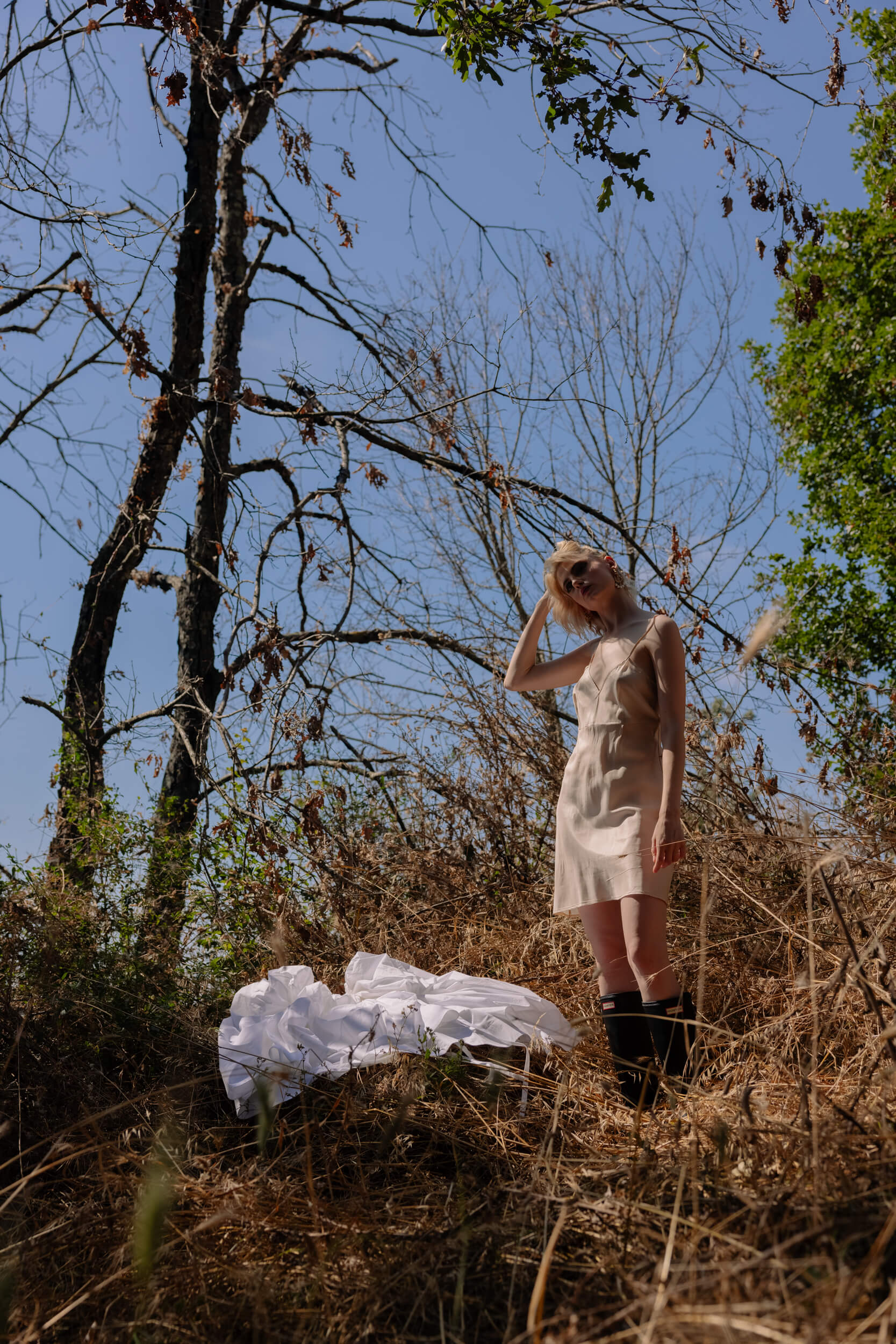
“There’s always so much noise”
Have you ever thought about the possibility of going behind the camera one day, perhaps as a director, or as a screenwriter, as you are also a writer?
I would never become a director in my life because I know I’m not suited for it [laughs]. As for the role of screenwriter, I’m not sure because I love writing as such… Maybe I would prefer to write story subjects rather than screenplays. Perhaps one day I would like to become a producer. I’ll do it if I become rich and have the right contacts! [laughs]”
You mentioned earlier that you’re writing a book…
Yes, I’ve finished it, but I haven’t sent it to anyone yet, again because of my procrastination issue [laughs]. It’s a collection of stories, poems, letters, and illustrations.
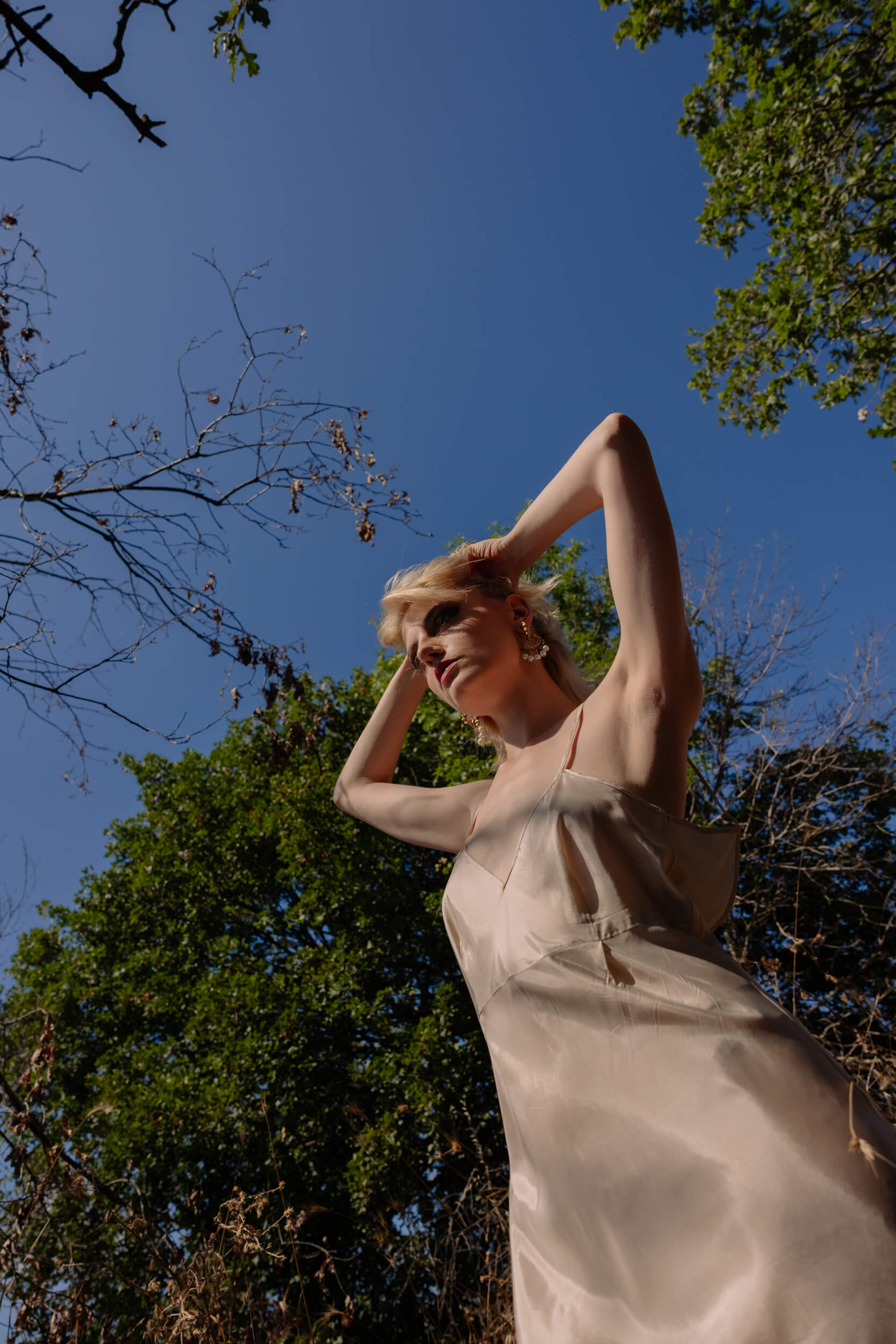
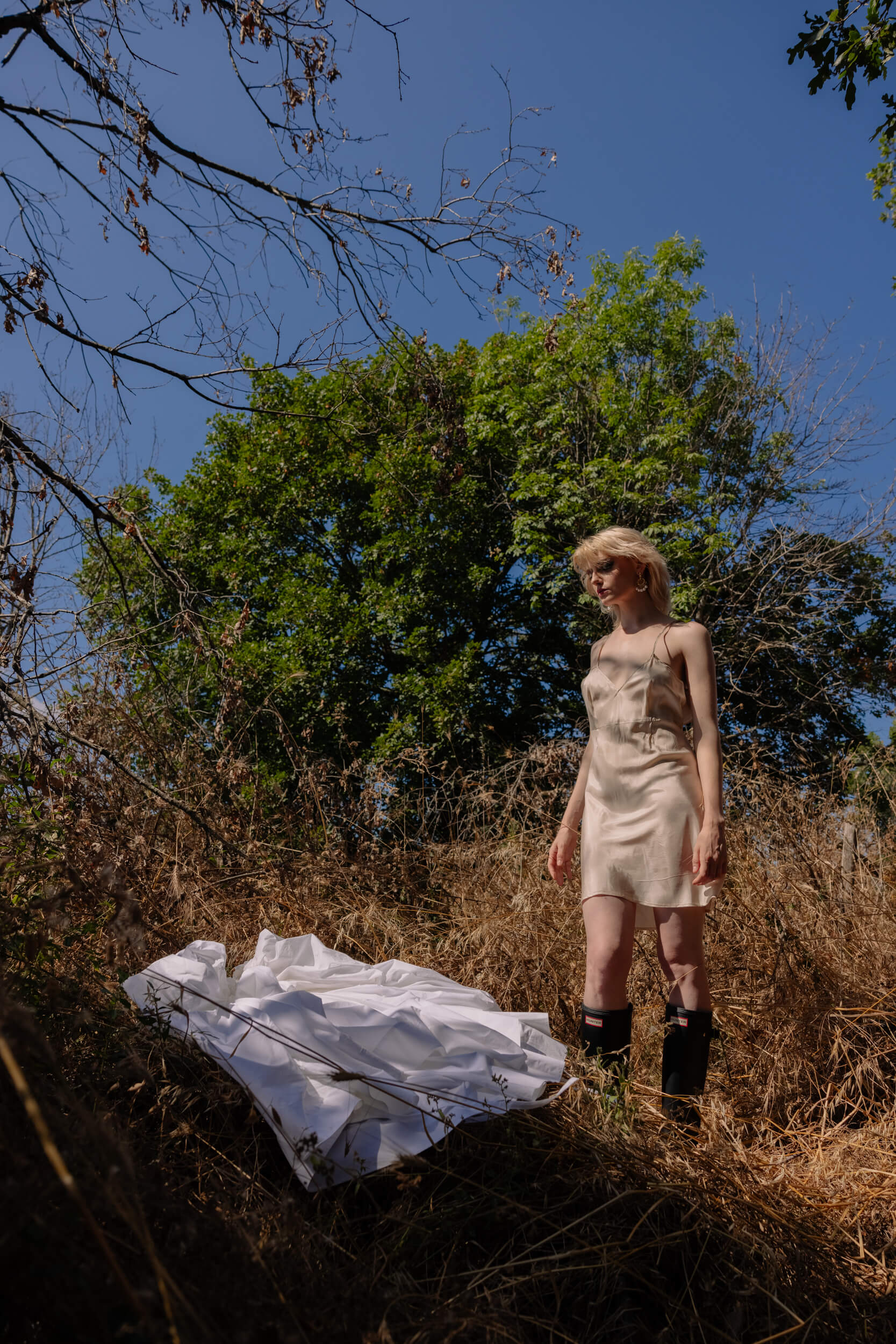
Any epic fail on set?
Nothing particularly spectacular, actually. Once, while filming “Tutta colpa di Freud”, I had to ride a bicycle, and I ended up in a bush [laughs]. However, there have been more epic fails in my real life!
What’s your must-have on set?
Cigarettes. If I don’t have them, I go crazy.
What’s the bravest thing you’ve ever done?
Moving to Rome alone at 18, going out alone at night, performing around… Then, last December, I did a theatrical show that I wrote, directed, and performed, and that was very brave. Thirty people came to see it, and I was very proud of it.
What are you afraid of?
Physical pain. I’m afraid of getting hurt.
What’s your biggest act of rebellion?
I’ve always strongly defended “Non credo in niente”. I’ve believed in it from the beginning, and I’ve never stopped believing in it for a second, even when some people didn’t understand it and didn’t appreciate it. In such cases, some people may pull back, but for me, it pushed me to believe in it even more. I will defend this film to death, and I consider it an act of rebellion.
“I will defend this film to death”
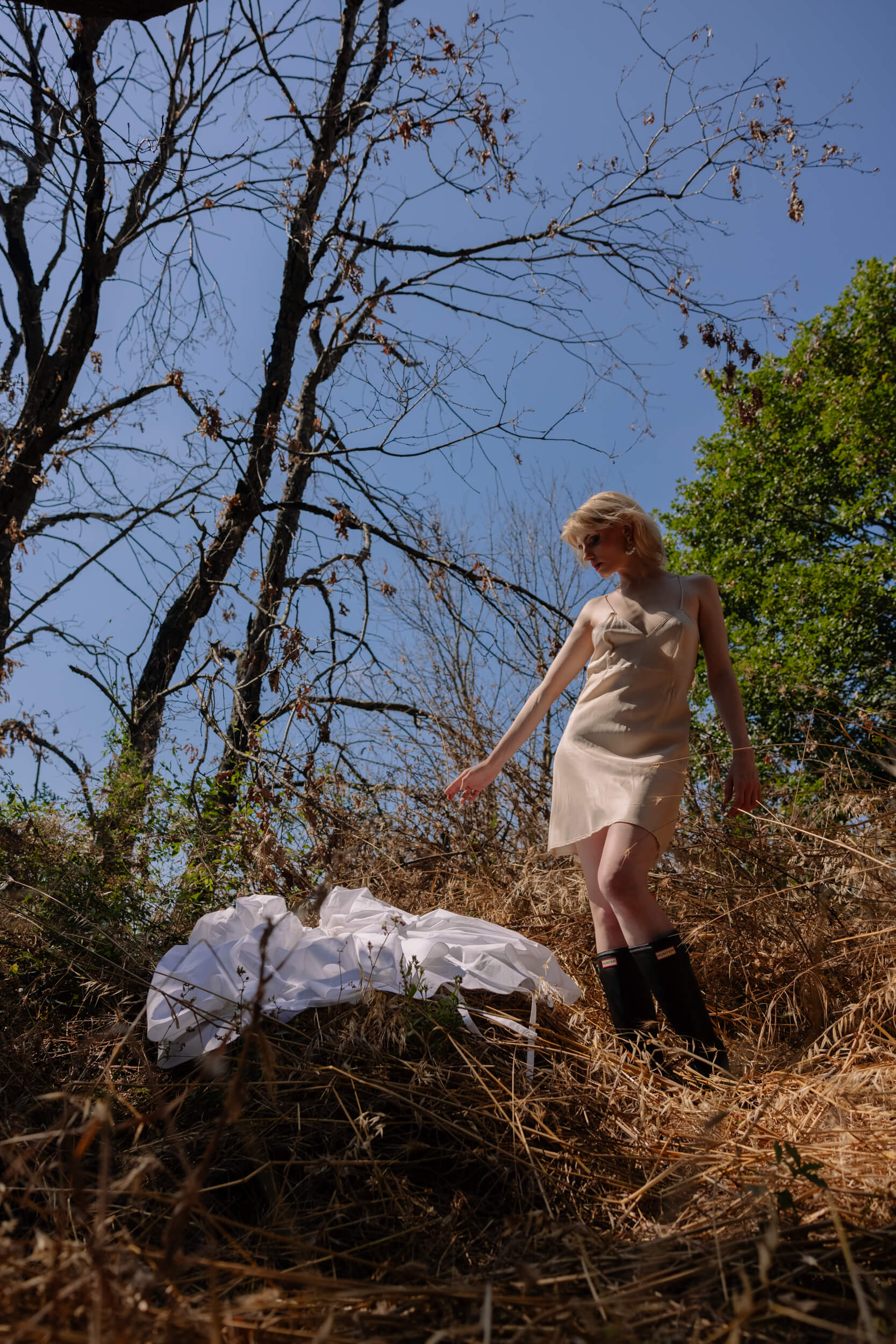
What does it mean, for you, to feel comfortable in your own skin?
It means not having to worry about how I look when I’m out, feeling comfortable, not feeling observed or feeling like I don’t fit in. Unfortunately, there are many young people who don’t feel comfortable with themselves.
What was the last thing or person that made you smile?
Today, my driving instructor when I passed the theory exam.
Your happy place?
I love the mountains; that’s where I’m happy. The other day, for example, I was at a festival with Alessandro and others from the film in Soriano, which is a beautiful place in the mountains. I would have liked to stay there longer. So, the mountains, with the people I want to be with, and my cat. What could be better?
Photos & Video by Johnny Carrano.
Makeup and Hair by Elisabetta Distante.
Styling by Sara Castelli Gattinara.
Location Agriturismo Tenuta Monte La Guardia.
Thanks to Other srl.
LOOK 1
Top: Quira
Trousers: Forte Forte
Shoes: Gianvito Rossi
Earrings: Zara
LOOK 2
Top: Castor Mantu
LOOK 3
Dress: Forte Forte
Body: American Vintage
Earrings: Argentoblu
LOOK 4
Dress: Quira
Boots: Hunter
Earrings: Archive

